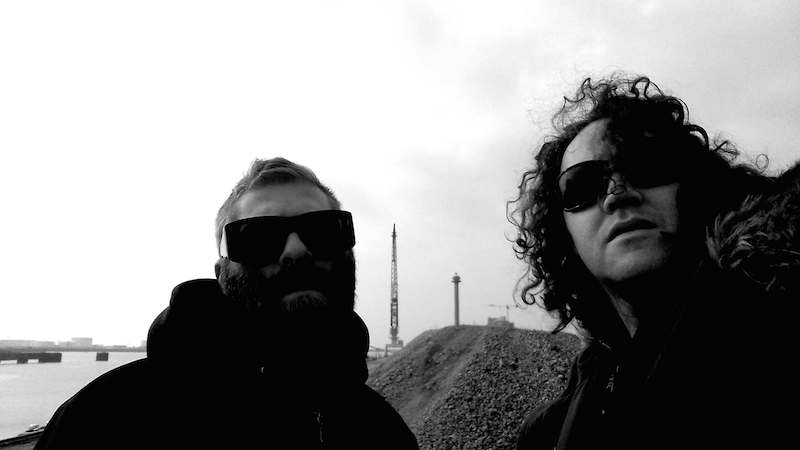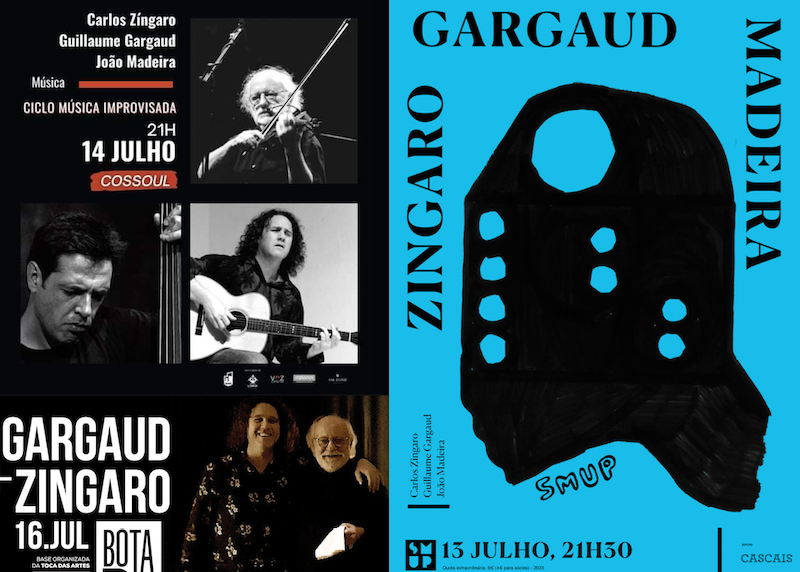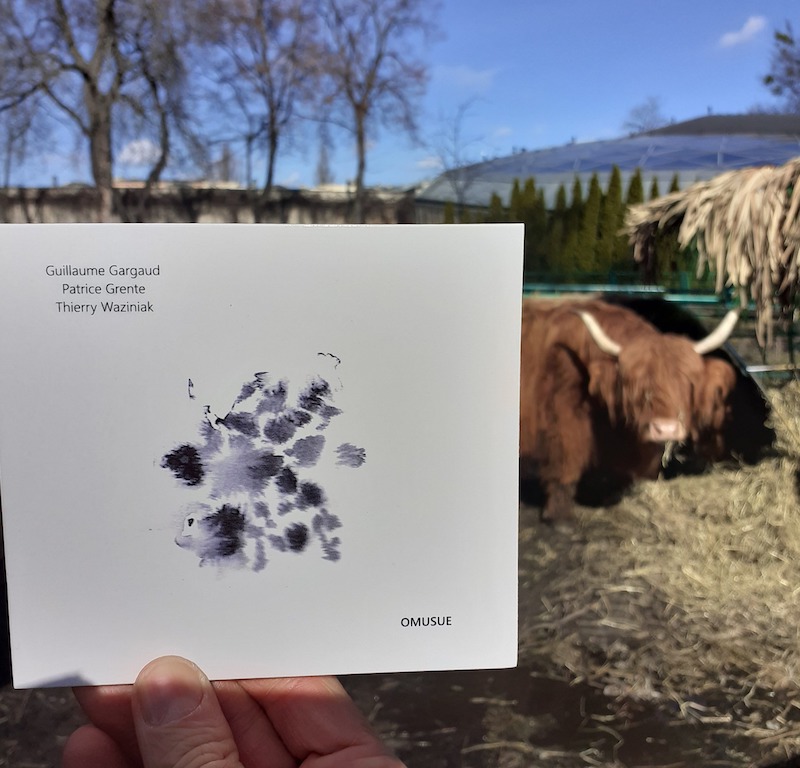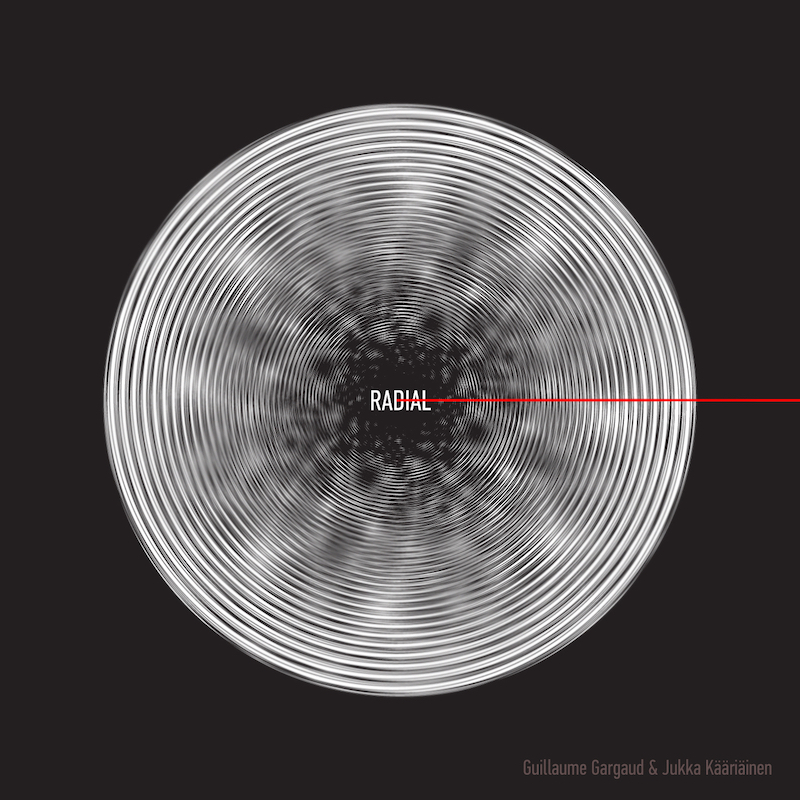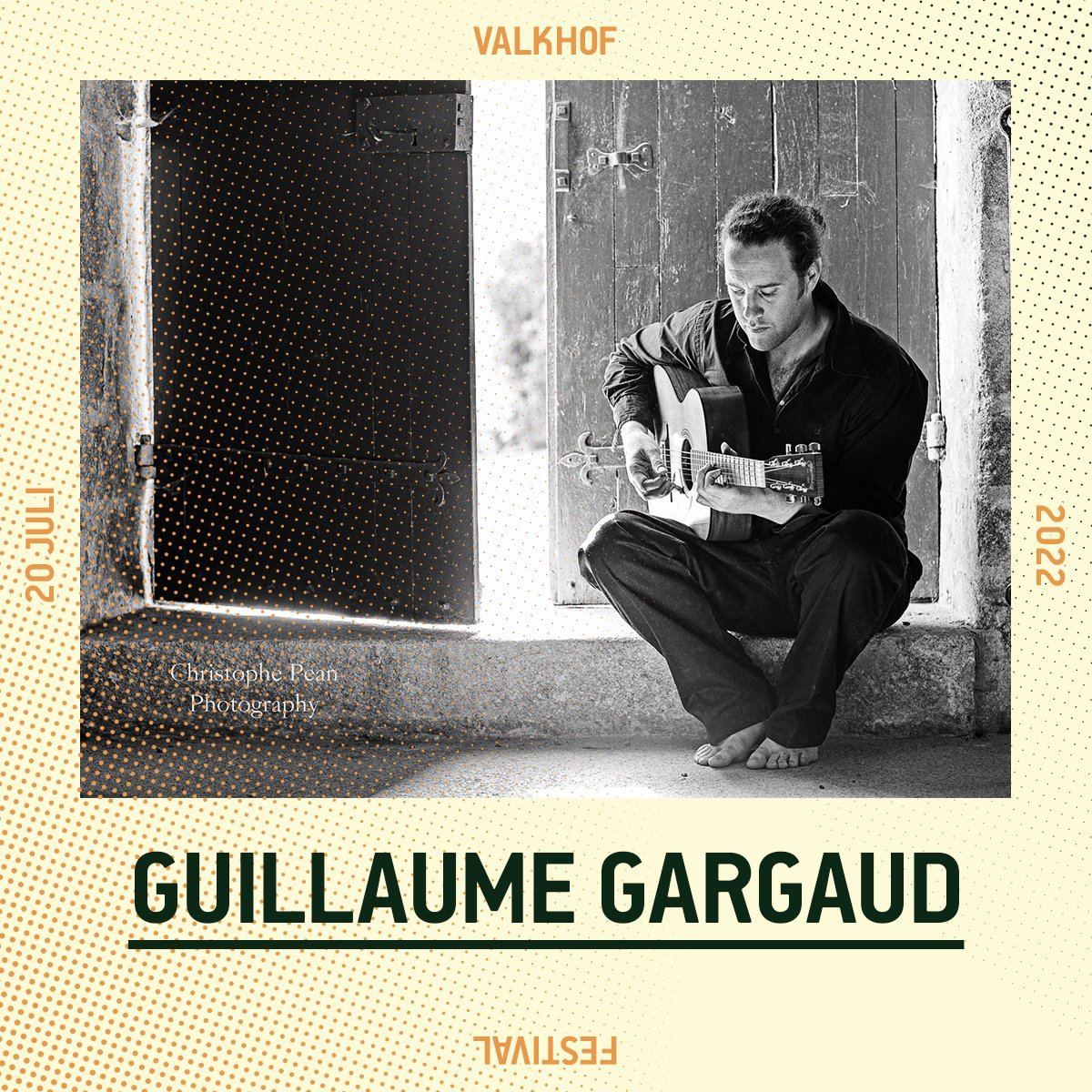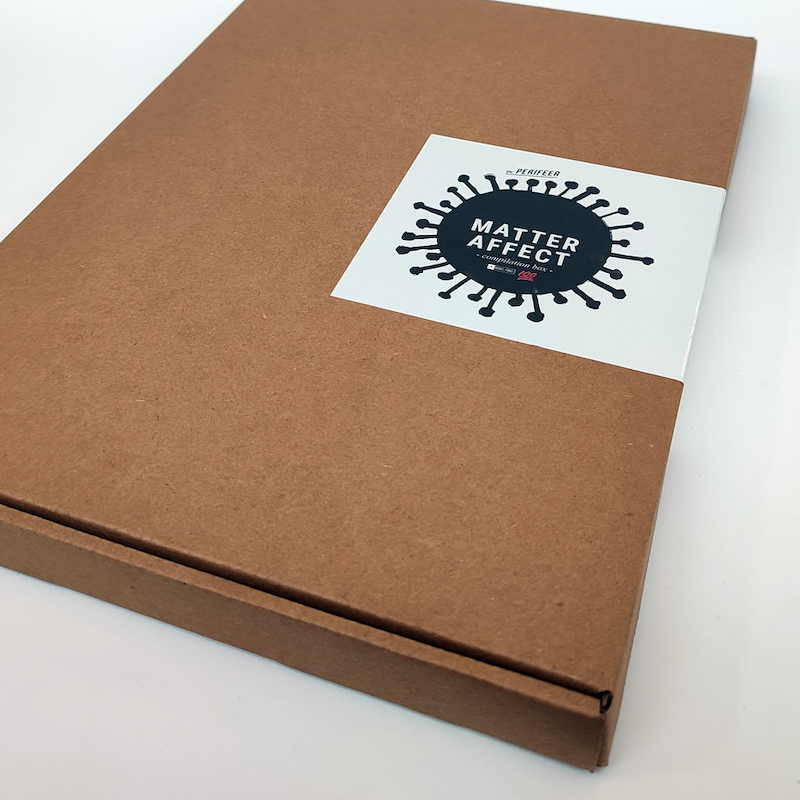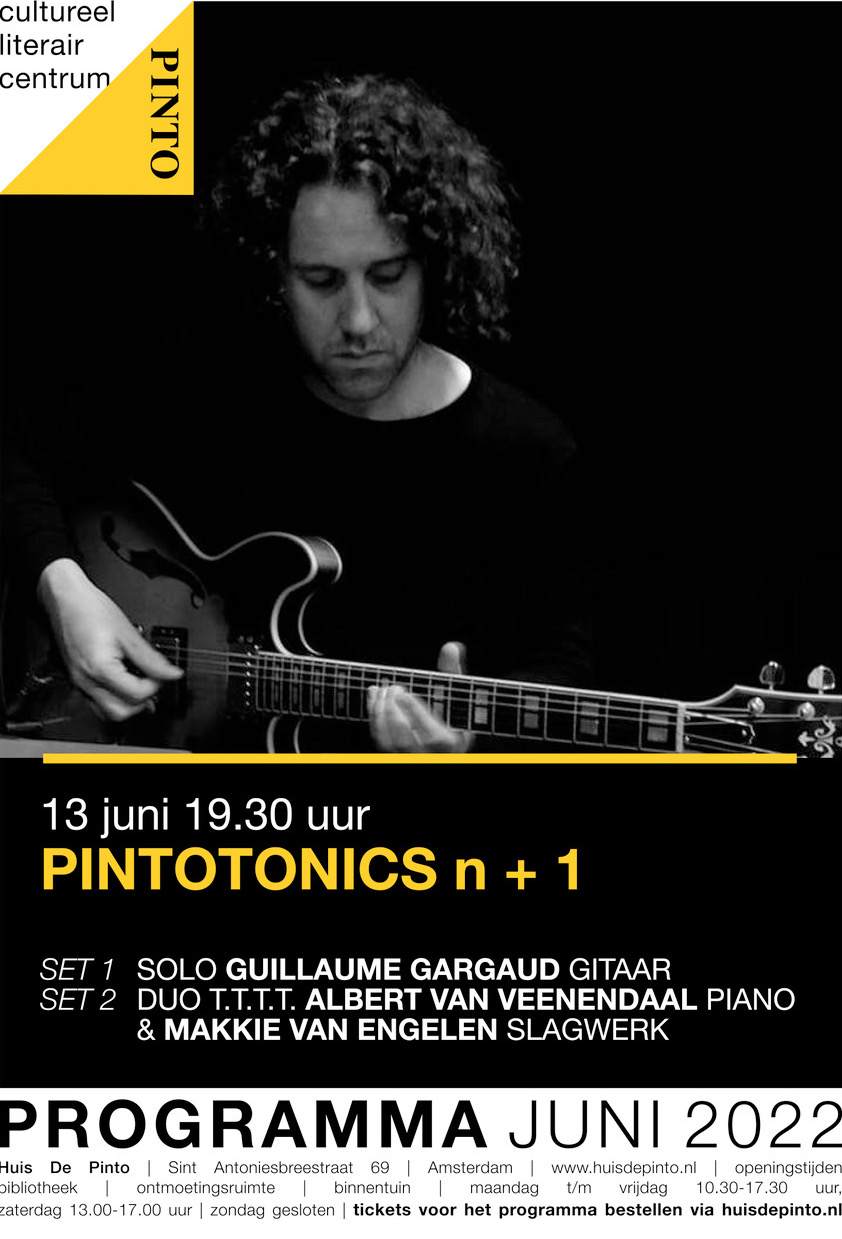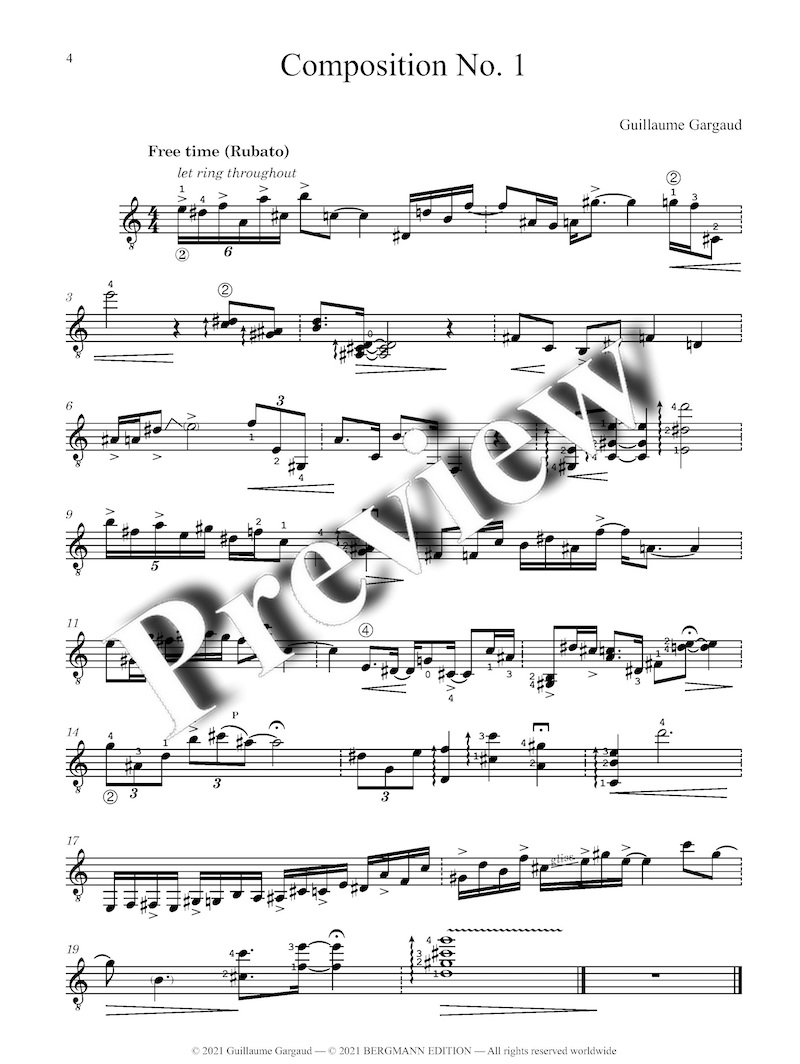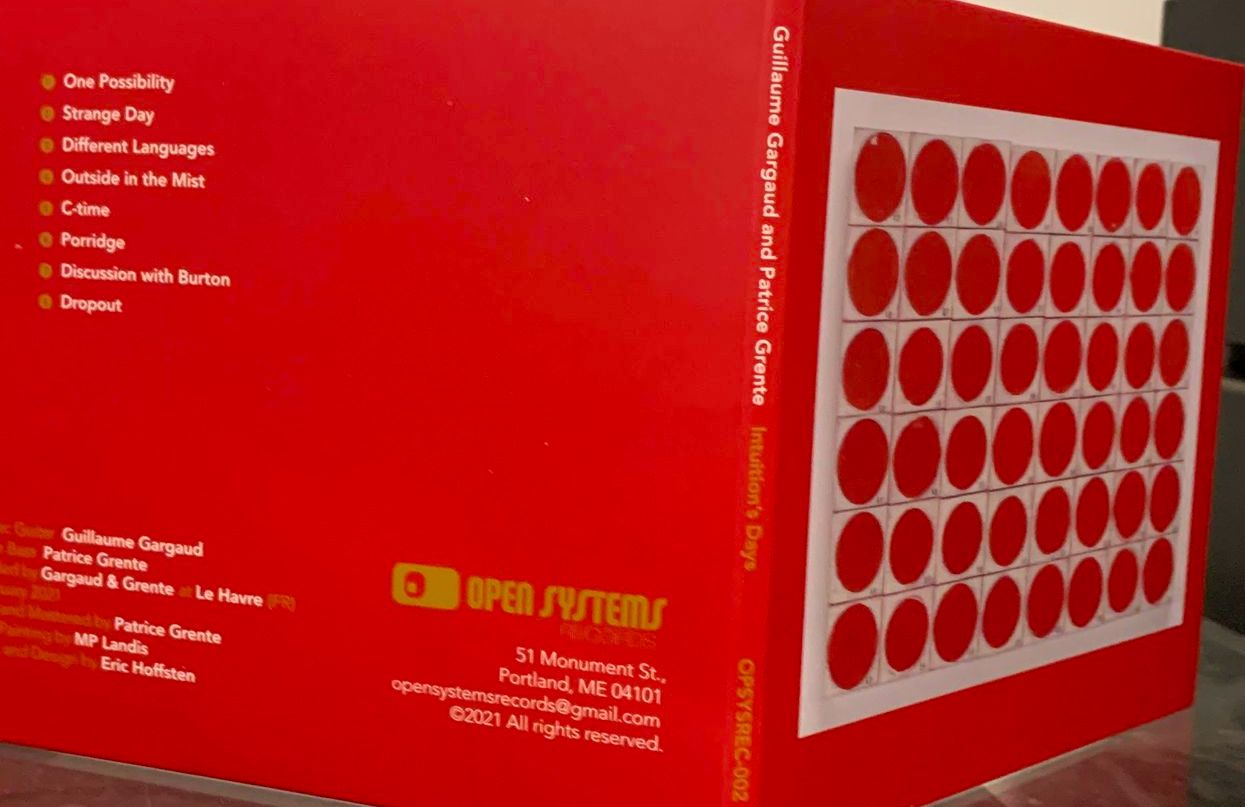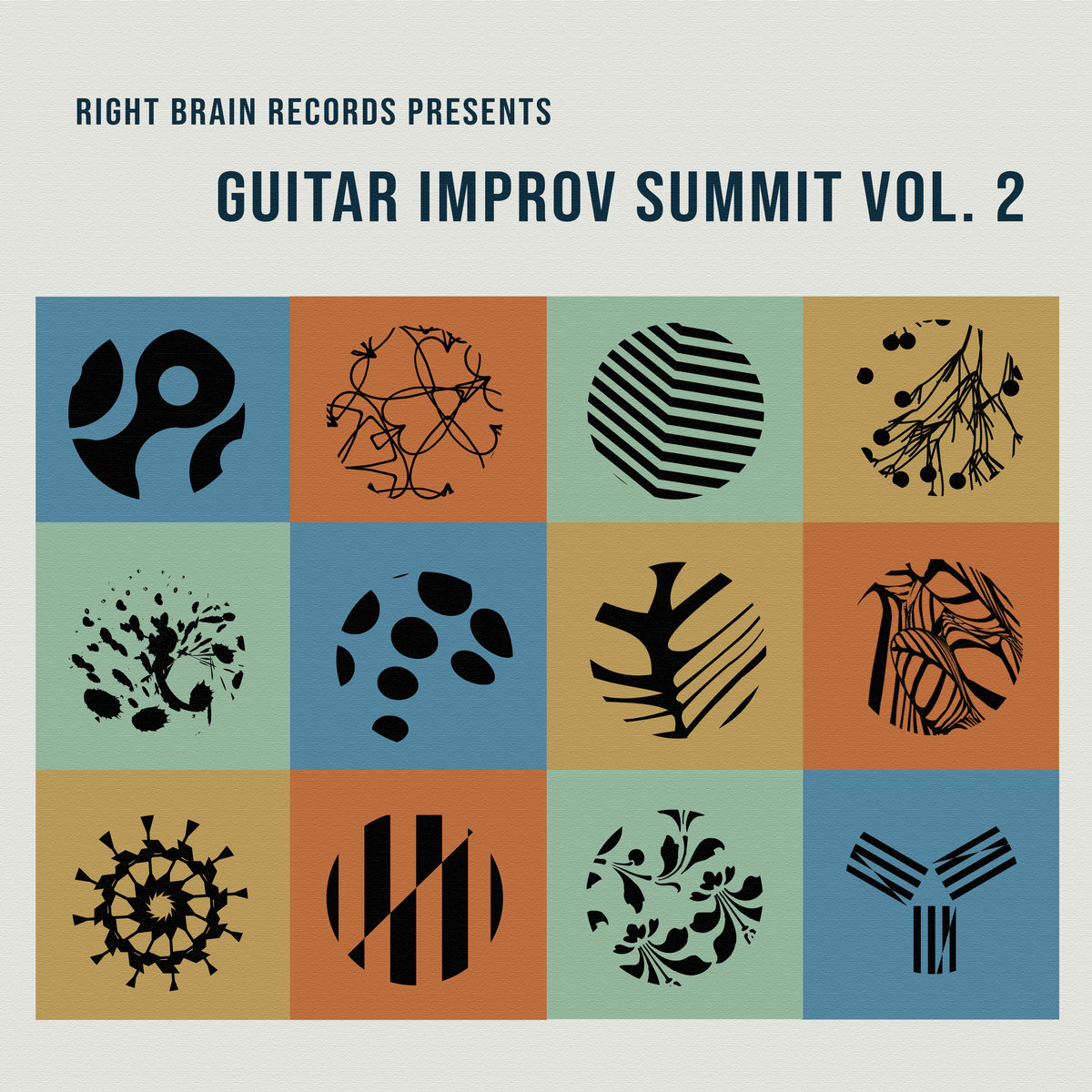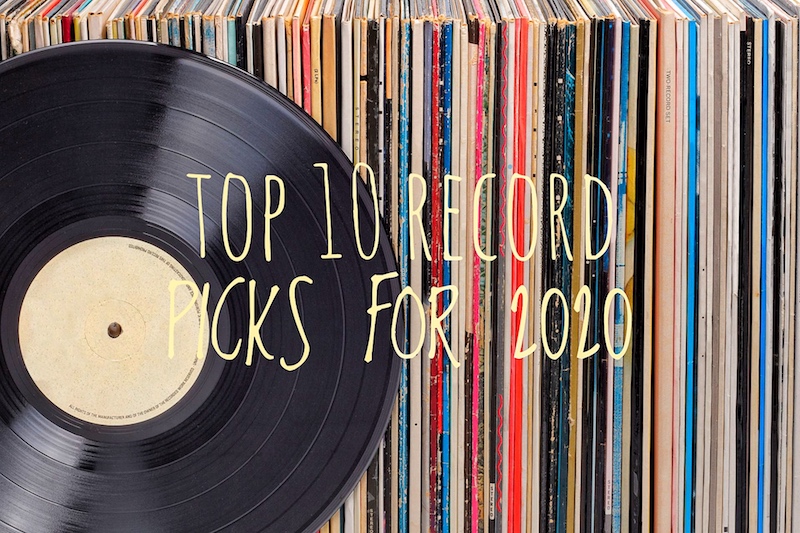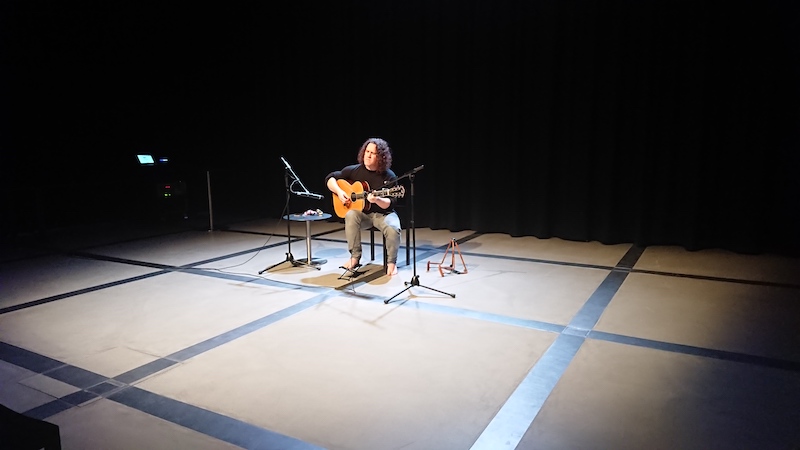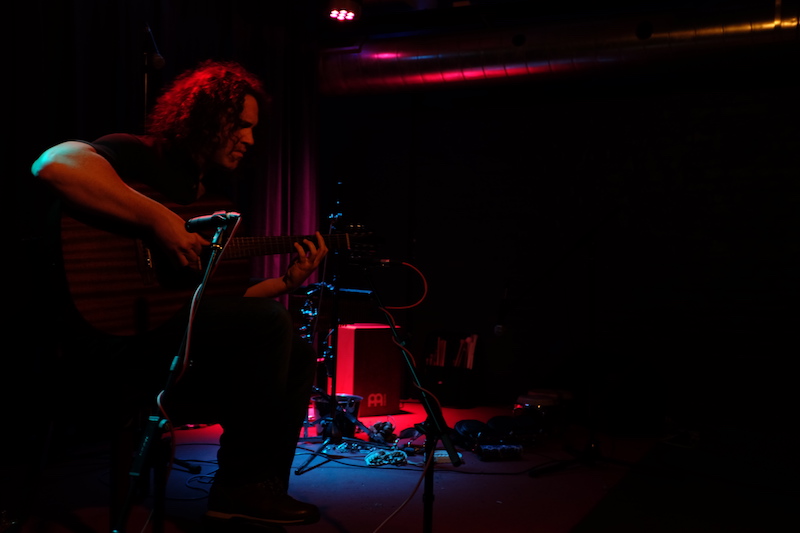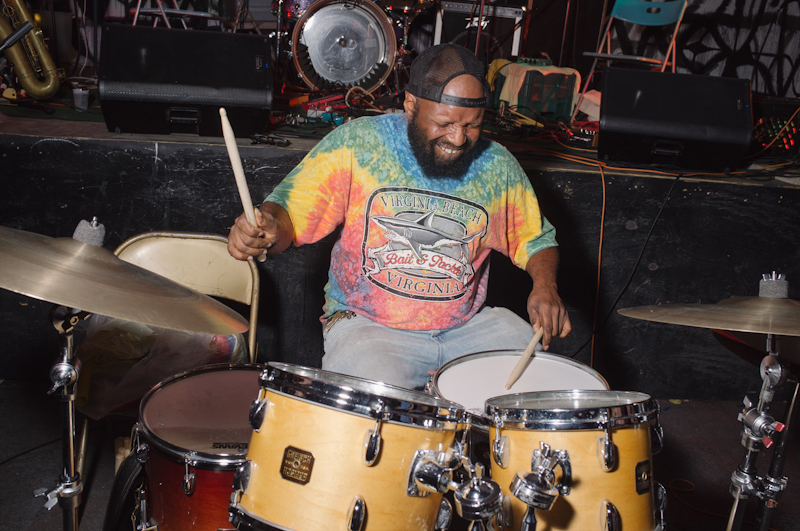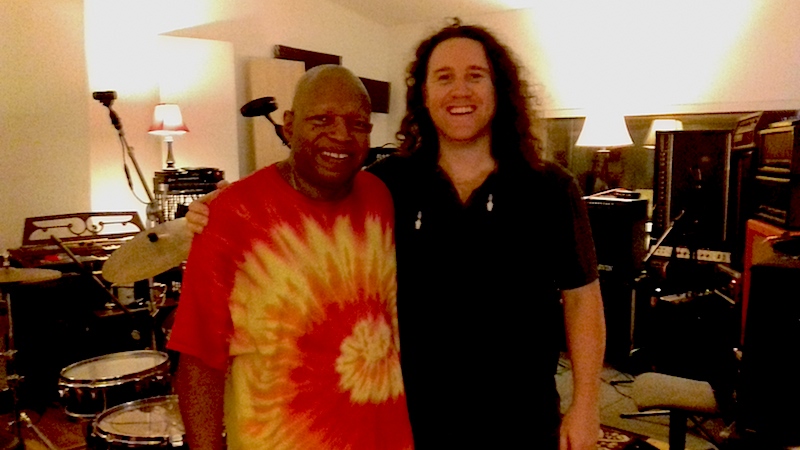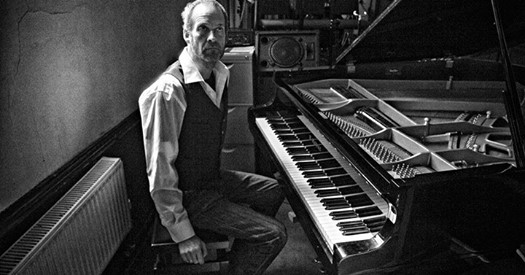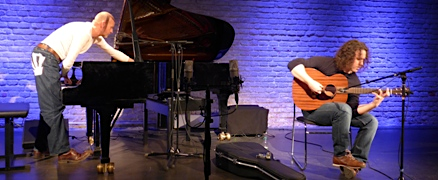Australian & New Zealand Tour


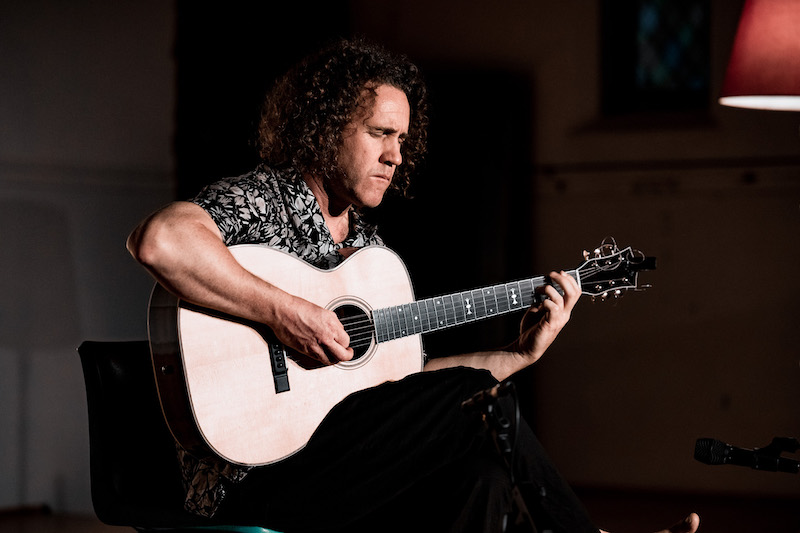
Photo credit to @sonicsydney
New recording with Eero Savela
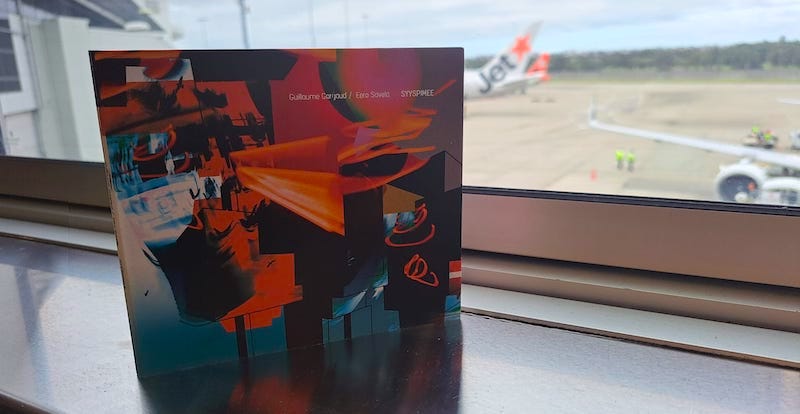
Syyspimee - Guillaume Gargaud & Eero Savela
Label: Ramble Records & (bandcamp)
Catalog #: RAM-159
Location: Melbourne, Australia
Release Date: February 2, 2024
Media: compact disc, digital download
Review by Poison Pie
The world may not be infinite but its contents are greater than any one individual can experience in a single lifetime. Thus it is possible that someone can make music of a particular variety, say for sake of this example, improvised jazz, for many years, while another person can regard themselves as a seasoned listener of the same variety of music, without the two ever crossing paths. Rather than accusing the listener of having limited or provincial tastes or suggesting that the musician is of strictly local interest, we can instead celebrate the inexhaustible supply of human creativity that allows even old ears to discover the delights of voices, perhaps of similar vintage, but new to their ears.
Such is the case for the staff of the Poison Pie Publishing House and the music of Guillaume Gargaud & Eero Savela. The album, Syyspimee, served as our introduction to both musicians. The album contains eight duets of guitar and trumpet. No other guitar/trumpet duets instantly spring to mind, so the choice of instrumentation itself proved ear-opening. The esthetic of the musicians found precisely the right balance between improvisational meandering and incidental melody that is so pleasing but somewhat rare in the realm of improvised jazz. From the first notes, we were instantly drawn to the music.
The title Syyspimee translates from Finnish into English as "the darkness of autumn". Usually, we allow the titles of abstract instrumental music to guide our listening in the direction intended by the artists. However, in this case, we have to admit that we did not hear a darkness, or even the approach of darkness, in the music. Instead, to our ears, the music was borne on a lightness that pervaded the entire album. There is a natural bouyancy that evokes a brightness rather than an exploration of unlit depths.
The playing of neither Guillaume Gargaud on guitar nor Eero Savela on trumpet is easily pigeon-holed. In these reviews by the PPPH staff, we often find ourselves describing an album in relation to the music of another album by a different artist. The playing of the instruments doesn't fall within any single genre and the musical memories triggered by listening were many and unrelated. For example, the trumpet of Savela recalled at times the wind-through-brass-instrument sounds that are characteristic of far-out, provocative experiments captured on various releases of Relative Pitch Records (such as Aphelia by Lina Allemano & Axel Dörner) and at other times it seemed in the same vein as melodic trumpet works, intended purely to indulge the listener (such as Dreams by Ramon Moro & Emanuele Maniscalco). Yes, we understand that the trumpet playing on these two examples are as different as night and day and that is the point and, moreover, the ears need both.
No less did the playing of Gargaud span the range from free improvisation to classical guitar and many undefined territories between the two. While comparisons to Derek Bailey are used too often, in this case, we hear in the intentional resonance of the strings, a similar exploration. At the same time, as we noted above, the musicians on Syyspimee make no attempt to eschew a simple beauty that charms ears looking for calm harbors (such as The Boy Next Door by Sandro Gibellini, Giulio Corini & Emanuele Maniscalco).
The combination of guitar and trumpet was gorgeous. To find such immense pleasure in an introduction to musicians on an album is at once unanticipated, because not every release can be expected to be exceptional. At the same time, these surprises are welcome because this is the recurring appeal of listening to improvised music—there is now and then a new delight waiting to ambush you the moment you press "play".
New Collaboration with Carlos Zingaro & João Madeira
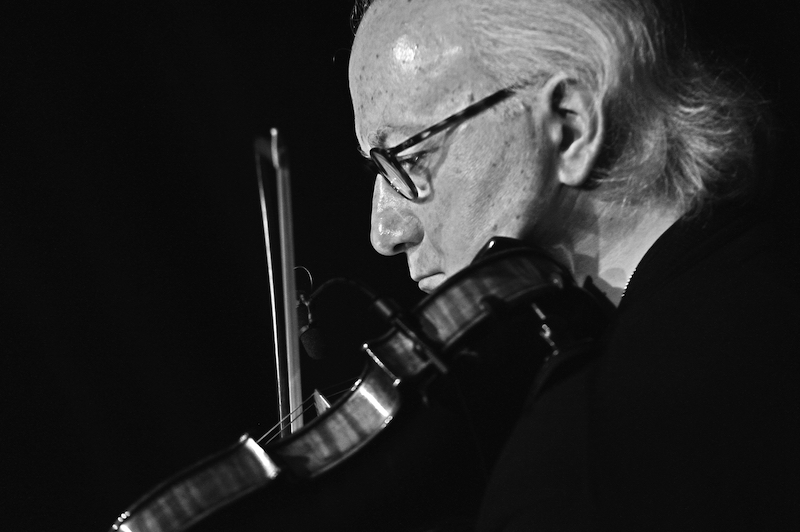

N'Bandi - EP
All music composed by Carlos Zíngaro, Guillaume Gargaud and João Madeira
Recorded on July 15th 2023 in Memória, Lisboa
Mixed and mastered by João Madeira
Art Cover by Miguel Mira
Production by João Madeira
4DaRecord2023
4DRDGTCD006
This is an exclusively digital 4DR album edition
New recording with Lauri Hyvärinen
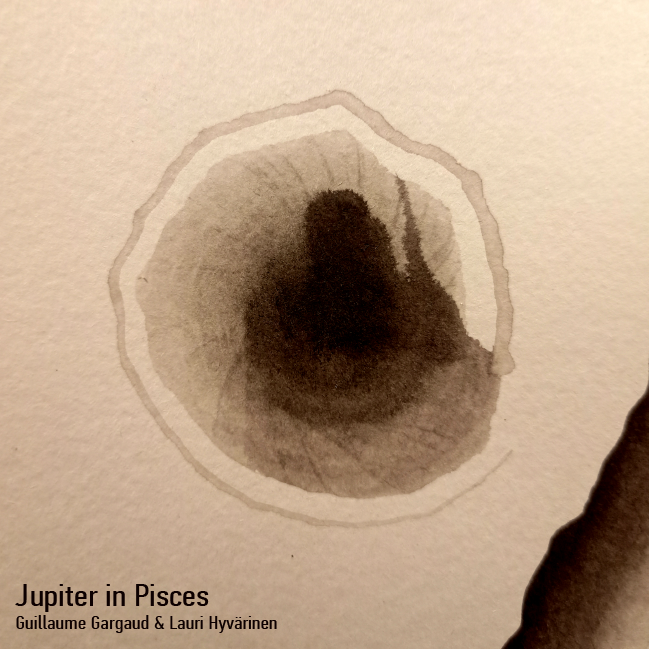
Recording and mastering Lauri Hyvärinen at Helsinki
July 2022 Plus Timbre Recording
New Album Solo "Koenji"
This new album, Kōenji, is a set of seven solo acoustic guitar improvisations. Guillaume's playing is so distinctive it's hard to find a point of comparison. His music is abstract, technically fluid and mysteriously captivating.
“Guillaume Gargaud’s style of improvisational guitar is intriguing and absorbing... His music will lift you to enormous euphoric highs via twisted glacial landscapes and then leave you breathless in a black hole of psychedelia”
— Dead Pilot Records
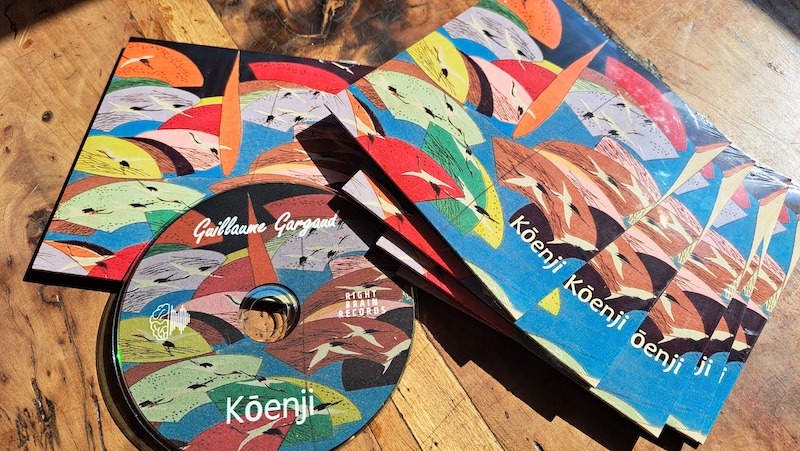
Koenji is a set of seven pieces for solo acoustic steel string guitar by guitarist Guillaume Gargaud of Le Havre. The music here relies on nothing more than the sound of the plain, unadorned instrument and the creative imagination of the instrumentalist. Fortunately, the latter is in abundant supply. Gargaud alternates single-note lines with finger-picked counterpoint and strummed chords; the mood is generally extroverted and energetic. Throughout, free flowing yet complex harmonies unfold with a logic that, for all its apparent spontaneity, coheres around the lead of a handful of well-considered ideas. All of this is played with a sure touch that brings out the bright-edged, austere beauty of the unaccompanied instrument in its fullness.
Daniel Barbiero for Avant Music News
Guillaume Gargaud is a French guitarist and composer who lives and teaches in Le Havre. He has several releases on his name. It’s just him and his acoustic (steel string) guitar here. In just over a half hour, Gargaud whips up (mostly) tonal and relaxing-sounding music, very Manonfriendly. My wife said to me that she liked the music very much. I do, too. That is not to say that this is the background music of even worse new-age music. The release merits attentive listening because a lot happens within each part. Part Six, the release contains seven parts and has jittery plucking and movement up and down the fretboard, including harmonics. Part seven, on the other hand, has a more reflective mood. He’s a virtuoso on the guitar, but not in a showing-off kind of way. It’s all in service of his ideas, and he has many. There are so many that some beautiful ideas come and go and never return, which merits repeated listening. Parts may change in mood over time. And there’s never a dull moment on this release. If you want to know more about Gargaud, I recommend checking his website: https://guillaume-gargaud.fr/. Just before ending this review, I saw he has a release with the late and great Burton Greene called Magic Intensity. That’s worth checking out as well. (MDS)
Frans de Waard for Vital Weelky
New Record with Patrice Grente & Thierry Waziniak
Gargaud and Grente released an album in a duet by Open Systems Records in 2021. As Guillaume recalls, it was not easy to meet a drummer who would be able to co-play with an unamplified acoustic guitar and double bass in parallel directing his dynamics. Thierry Waziniak works masterfully in these circumstances. Each of the musicians plays an equal role in creating abstract circuses thrilling with freedom of expression, instrumental virtuosery and even quantum entangled communication. Musicians understand each other perfectly, exchange new ideas in a flash, artificially and at the same time with temperament build forms and jointly direct their improvisation into the unknown.
The Squid's Earby Phil Zampino
A choppy little disc of intimate improvisation for three acoustic instrumentalists. Playing standard drum kit alongside unamplified bass and guitar without drowning them out is no mean feat, and Thierry Waziniak acquits himself wonderfully here. He comments or provides just enough thrust to suggest direction without becoming overbearing. A committed listener, obviously. Guilliaume Gargaud on guitar and Patrice Grente on upright bass tumble and roil together in unpredictable masses of string tangle. I can discern no overt influence in anyone's playing here either, which is also not easy.
So much has come over the wire by now that it would seem that everything's already been played. And yet. The briefest of memory-nudges appear like quick-moving referents: a spate of drone in the middle of "BAUSHIG" conjurs up the ghost of Charlie Haden, or the briefest of old-timey jazz congeals and dissipates frequently. Greasy behind the nut plucking is followed by odd-meter scalar runs and popping snare-rim ticks. The affixed titles here seem like neologisms (I could be wrong), which fits perfectly with the notion that language needn't be overlayed on the practice of music.
The whole session has been captured in crystal clear fidelity. I am particularly enamored of the track "MW IQUE", with its open spaces and hanging chords, it sounds very much like a conversation between three old friends.
Spontaneous Music Tribune Review (Google Translate)
French, fully acoustic, how free improvisation, but released on the Warta River! Post-Bailey guitar, which is not afraid of neo-classical ornaments, seasoned, clean-sounding double bass - from post-baroque, string singing, to compulsive emotions of far blues provenance, and finally punctual, vigilant, perfectly complementing string lines. Seven 5-7 minute, compact stories on the subject, with good dramaturgy, constructed according to the principle that tasty, expressive lines should be preceded by slightly thoughtful introductions.
As if in spite of the rule stated in the previous sentence, the beginning of the album seems to be fiery almost from the first phrase. Fast pace, feline agility, precision of every action and coherent, unconventional sound. In this original improvisation, everything fits together as if it were cut with a single cut of a scalpel. And a breath of post-modern flamenco, and Renaissance thoughts as part of the icing on the cake. In the second story, the musicians show that also by limiting the means of expression they are able to effectively divert attention. They do equally well in the non-expressive post-ballad, which blushes thanks to the great drummer work. In the fourth installment, they build a multi-layered narrative with a plethora of more or less feisty short-cuts. In the next two improvisations, they attach even more importance to narrative details, and both form neat, post-blues stories. In the first of them we are delighted with the guitar, in the second, not for the first time, the power of action on the snare drum, toms and cymbals. The final story at the start seems to be a final ballad, but - again without surprise - it takes on quite fiery shapes on the final straight.
Andrzej Nowak
GARGAUD – GRENTE – WAZINIAK Omusue (TORF records, TR007): Das subtile Artwork von Weronika Lutkiewicz macht alle TORF-Releases in Poznań augenfällig zu Geschwistern, angefangen von „+Q“ (TR001, 2021) als Duett von Mattias Müller & Michał Giżycki, mit Bassklarinette, Soprano- oder Tenorsax Initiator aller TORF-Dinge. Mit dem Drummer Piotr Dąbrowski, bei „Loka“, „Deva“ und „Citta“ im Duett, als Doppelstern. Die sieben Improvisationen hier, von 'Mus<Ami' bis 'Musmiue', bilden daher die große Ausnahme, als rein französischer Import, mit Guillaume Gargaud an akustischer John Russell-Gitarre, Patrice Grente (von Atlantis, Décor-Um, Egg, Knoonk in Caen), seit 2016 dessen oftmaligem Partner, am Kontrabass und Thierry Waziniak (Trio Rives, Quartet Alta, We Free, Le Circle, DWBH) an Drums, auf seine feinflockige Weise gewohnt extraordinär. So lässt Grente, zugleich süß und kratzig, den Bogen singen oder plonkt stramme Gummifäden, Gargaud krabbelt, rupft und plinkt die Saiten und Waziniak bröselt und streut darüber Späne, Hagelkörner, schrottigen Kleinkram. Nicht ohne, und das macht das so eigen, einen Anhauch von spanischer Gitarre, bizarre Manierismen bis zurück zu Arcimboldo und Marenzio, grübelnde Gedanken im Zeichen des Saturn. Mal hat ihre Muse Hummeln im Arsch, mal vertrackte Formeln im Kopf, sie schneidet Fratzen, sie kratzt sich wie ein flohender Hund. Die Töne taumeln, stolpern, springen über Fell und Metall, seiltänzeln auf dünnem Draht, ohne je zu stürzen. In ständigem Insichwiderspruch kreuzen sich innige und lakonische Gesten, verzahnen sich flirrende und hackende Kapriolen mit sonorem Brüten, paart sich quecksilbrig huschende Flüchtigkeit mit zelebrierter Akribie. [BA 120 rbd]
Guillaume Gargaud (acoustic guitar), Patrice Gente (double bass) and Thierry Waziniak (drums) are recognized improvisers. Their records and their music are found on the net, so everyone can listen to them and form their own opinion. We, here at the label, have written many times about Waziniak albums, or rather about albums in which Waziniak participates, collaborating with other musicians (Isabelle Duthoit, Trio Alta, Duo Libertaire, Duthoit / Waziniak / Bréchet / Hautzinger, Gimbayashi / Hélias / Waziniak, Miura / Mimmo / Waziniak, We Free, Trio Rives) and this is what we will do now, embroidering on “Omusue” [TORF Records, 2023], a new improv album, with its own special characteristics. First of all, let's say that here is a recording, which happened somewhere in Havre, a year ago (August 13-14, 2022), and which seems to be "live" and without special processing. Starting from the setting we would say that this is not "everyday", which is obviously due to the presence of the acoustic guitar - which has a very special role in the recording. Basically the guitar is passe-partout and plays "everything". And she sings, and participates in keeping the rhythm, and causes with her manipulation all those storms that develop in "Omusue". One could say that the folk tradition of flamenco is a basis for the guitar (which is correct), but in practice its role is much more complex - than indicating, say, a "musical region", around which an action will be detected. Thus, the acoustic guitar, Gargaud that is, acts provocatively, in general, giving the "air" to Grente to release his double bass (which even moves in microtonic regions), followed by the usually stormy playing of Waziniak on the drums, who possess energy and boldness. For hours you think you're listening to an acoustic folk group, improvising freely, according to the psychedelic standards of the old Takoma Records, adapted of course to the Franco-Iberian sound environment.
Phontas Troussas Diskoryxeion Reviews (google translate)
New Collaboration with Libero Mureddu
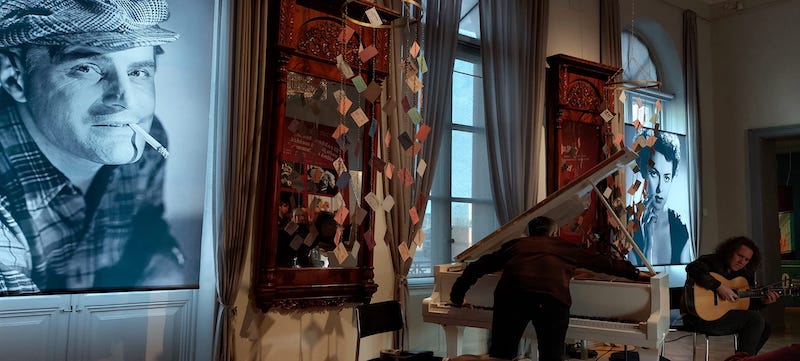

The duo of pianist and composer Libero Mureddu, born in Italy and living in Finland, and French guitarist and composer Guillaume Gargaud have recently released their debut album. Their matinee delves into the dimensions of free improvisation in compact miniature compositions born in the moment. Their music is a mixture of numerous conventions and styles of improvised and experimental contemporary music ranging from Anton Webern to Cecil Taylor.
Video extract concert at Helsinki Hakasalmen Huvila HERE
Copenhagen 2023
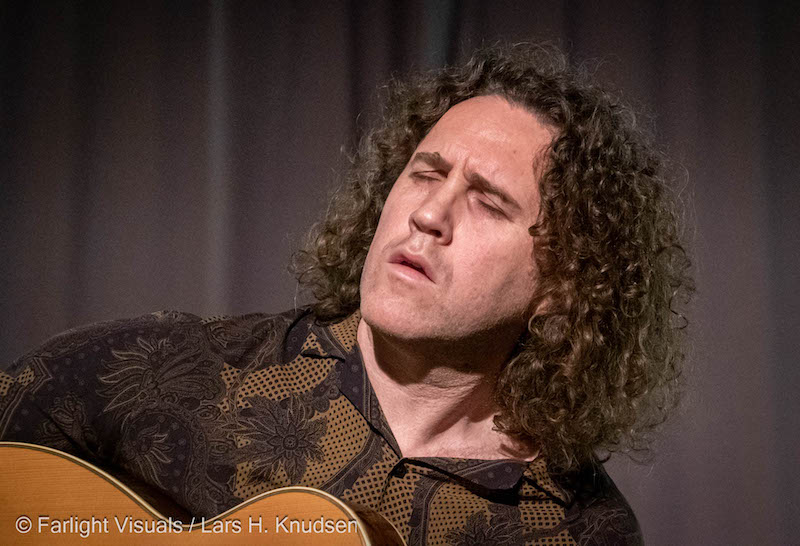
Klub PRiMi photo by Lars H. Knudsen
New Recording with Jukka Kääriäinen
This record is the first encounter with two guitarists Guillaume Gargaud playing 6 string guitar and Jukka Kääriäinen playing 12 string guitar. The recording was made in Helsinki in late July 2022 and features selections of improvisations made in one two hour session. The duo found immediately common ground from hocket rhythms, high energy playing and using the large dynamical scale.
Helsinki 2022
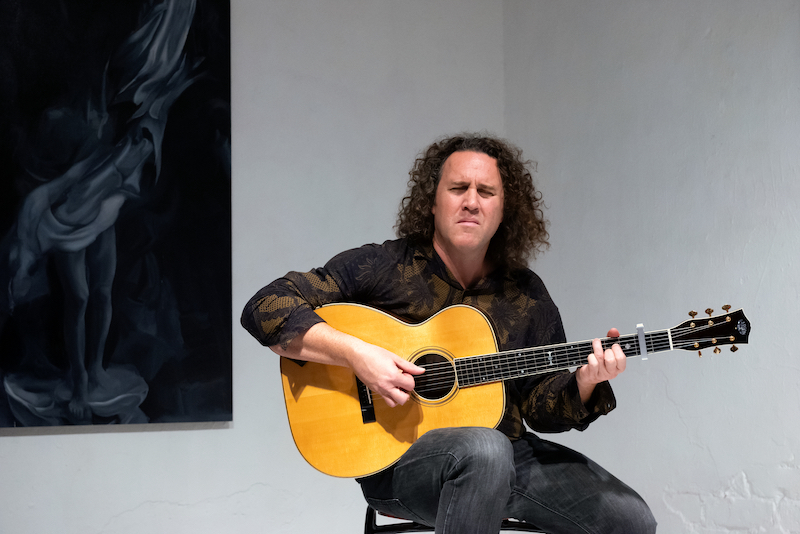
Concert at Helsinki Myymälä2 photo Kamilla Śladowska
New Compilation with ESC.REC
New Collaboration with New Focus Recordings
French guitarist, improviser, and composer Guillaume Gargaud is a restless musician, exploring many different corners of the avant garde and mining them for essential components that he can then integrate into his unique and powerfully expressive musical voice. On his 2011 release, Lost Sounds, we hear music for layered guitars and electronics, painting a maximalist soundscape. On 17 Compositions, Gargaud strips the texture down, presenting an austere twenty seven minute collection of linked works for solo steel string guitar that excavate the space between improvisation and cultivated notated work.
In a sense, 17 Compositions can be understood as an exercise to identify and then codify improvisational tendencies. Gargaud analyzed his improvisations to discern his “obsessions”, as he calls them, and then established constraints on his playing to try and focus the intention of the works. By choosing a pitch language that prioritizes dissonant intervals, Gargaud created a unified vocabulary for all of the pieces in the project, while establishing contrast through textural, gestural, and rhythmic means. For instance, on I, we hear angular arpeggiations played freely in irregular groupings of the pulse. On III and IV, the focus is on overringing sonorities and harmonics, while VIII introduces the evocative timbre of the string bend and X integrates those bends with quick flourishes, glissandi, and trills. The final composition, XVII, is written with perhaps the most conventional texture, a mournful chord solo that features more triadic material than the previous tracks, and reads as a farewell coda to the intimate space that the previous 16 short compositions have established.
This is music that asks to be listened to with focus and attention – the contrasts Gargaud establishes between the compositions are subtle, intended to draw us in. The entire set unfolds as a meditation on the melodic and harmonic vocabulary Gargaud has set up, reinforced by a phrasing approach that is not wedded to steady pulse, preferring instead to treat each gesture as a gem to be investigated on its own terms. While the genesis of 17 Compositions may have been quasi-didactic (an analysis and conscious manipulation of improvisational habits), the result is deeply personal and expressive, a retreat to essential components of music making.
– Dan Lippel
More information at New Focus Recordings
Avant Music News Reviews by Daniel Barbiero
Guillaume Gargaud’s seventeen compositions for steel-string, acoustic guitar are short—none is longer than a minute and three-quarters—linked pieces of an elegant simplicity. The simplicity is more in the concept than in the sound, which can be subtly complex; each piece involves self-imposed constraints that in effect attempt to convert some of Gargaud’s improvisational gestures into etudes centered on certain pitches and pitch relationships. And this is where the complexity comes in. For despite Gargaud’s focus on a paring down of material, the often-recurring pitch relationships that make up that material and that Gargaud introduces, elaborates, and plays variations on, are harmonically sophisticated and shot through with a dissonant tension that belies the rather quiet mood in which they’re presented. While each brief piece can stand alone as a kind of tone poem complete in itself, listening to the entire sequence is like seeing an object from many different perspectives which, taken together, give a picture of the essence of the thing.
The New York City Jazz RecordLe Havre-based Guillaume Gargaud takes a relatively purist approach to 17 Compositions: bare hands (not even a slide) on steel-string acoustic guitar, single takes (no overdubs), every track less than two minutes long. The compositions are abstract and oblique, eschewing droning bass-notes or obvious tonality—though many make indirect references to the pitches C or B—to give the album an intimate, improvisational character: the former due in part to audible breathing marking off each phrase with a faint but clear inhalation, the latter attributable to the elusive compositional structures suggestive of contemporary classical serial works. Gargaud achieves a beautiful balance of contrasting interactive parts, introducing variety via diverse techniques— leaping trills, half-bends, sparkling harmonics, muted tones, slow glissandos, crunchy poly-chords— featured in select spots, or else melded together in quick succession, as on the timbrally rich 13th track.
Scores published by Bergmann Edition
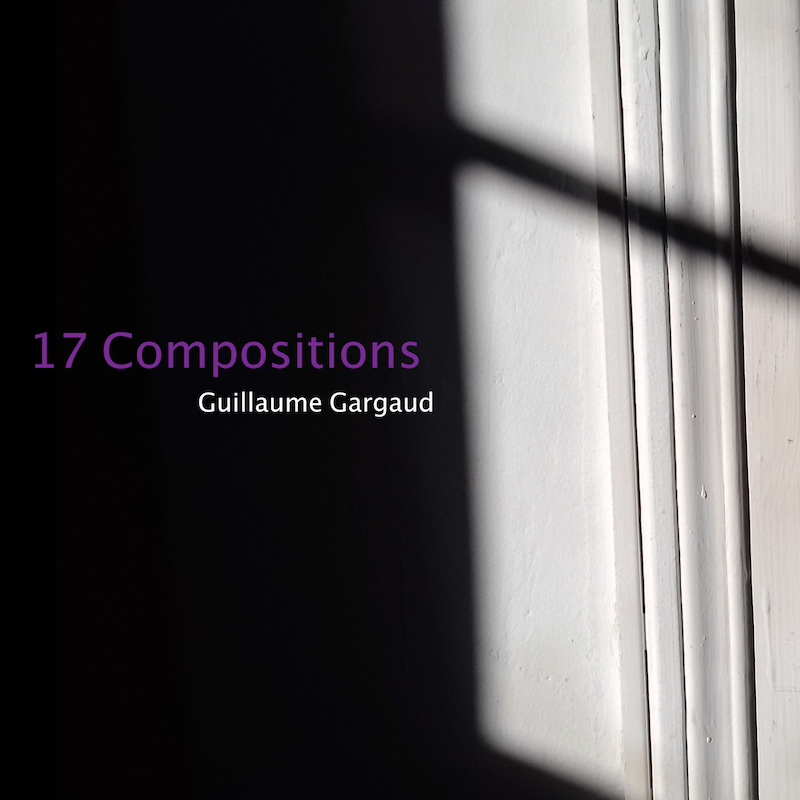
I composed these guitar pieces to develop my improvisational skills. I analysed my guitar playing to understand my harmonic and melodic obsessions in order to give myself new directions. I imposed many constraints on myself in composing these pieces. I chose to use primarily dissonant intervals to create chords and counterpoints. I worked with an atonal and chromatic approach. Playing at a slow tempo, I notated the rhythm accurately; but I highly recommend playing these pieces as freely as possible.
Please BERGMANN EDITION for more information
New Record with Patrice Grente
Pre order for the newest release on Open Systems Records is live now! Guillaume Gargaud and Patrice Grente Intuition’s Days is a limited edition glass mastered cd of 100 copies. Gargaud is a French guitarist /improviser/composer who has played on over 30 records and collaborated with Burton Greene and many others. He has worked extensively in dance and film.Grente is a self trained double bass player who works in jazz and free improvisation as well as dance theater and sound installation. He has collaborated with Phil Niblock and many others. This all acoustic duo is their first recording together. I’m really excited to release this. The music is special and played beautifully. The cds sound great too. The cover painting is by MP Landis and the graphic design by Eric Hoffsten . Head over to the bandcamp page HERE to have a listen and pre-order the cd. These will available to ship on 1/22/2022
Review by Jeph Jerman for Squidco
Beautifully recorded duets for acoustic guitar and upright bass. Skirting from composed sounding snippets to myriad variations on the snap and tangle, with some snaking melodic ur-jazz. Kinda like a stroll through the history of these instruments, these displays keep reminding me of things I can't quite finger. Occasional extra-musical tidbits get sprinkled throughout-a quiet vocal sound or snuff, the rustle of clothing — they add to the general feeling of sitting down with two attentive players to listen. Allusions to everything from ECM introspection to Django, to John Russell flit by, with dollops of humor amid winding sonorous backstreets.
Gargaud and Grente play it pretty straight here, not much in the way of extended technique. Just tons of slippery tonal mapping and careful build-ups of tension and release. Chord knots and sproingy twangings. Uncannily, there is often a shared sense of pulse that the duo manage to define by playing around it. You could tap your foot to what's only being implied, and that's a difficult thing to set up. Intuition indeed. Deft I'd call it, and my cats like it too.
Carnalisme with Etienne Ziemniak & Patrice Grente
CD's Available on Squidco & Nunc Records
Guillaume Gargaud turns in another fine performance with « Carnalisme. » Fans of hardcore rock, metal, and, free jazz will love this recording. This entire project is organized chaos in its purest form. Carnalisme is quite thorough as they explore the sonic airwaves. There’s something here for everyone. Make Carnalisme the next record you buy ! »
Marc Edwards from New York Free Jazz/Noise Rock Drumme
Carnalisme is a word borrowed from Michel Koch in his book “Piety for the Flesh”. The definition he gives of it rings perfectly with this music of chaos: “This fuzzy, troubled and slippery place, which everyone owns and no one can spot, this is where all Carnalisme is drawn from. »
Carnalisme is a group formed by double bassist Patrice Grente and drummer Etienne Ziemniak in 2010. For this fourth album, they include guitarist Guillaume Gargaud in their jubilant, frenetic and paroxysmal practice of free improvisation. A massive group sound carried by a mad energy emerges from this meeting to give itself generously to you.
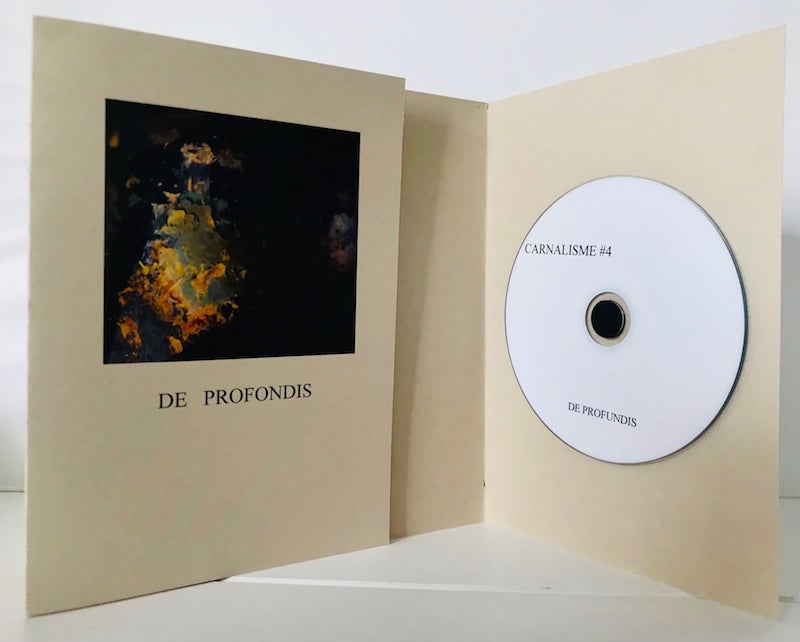
French Reviews
New Collaboration with Henry Kaiser
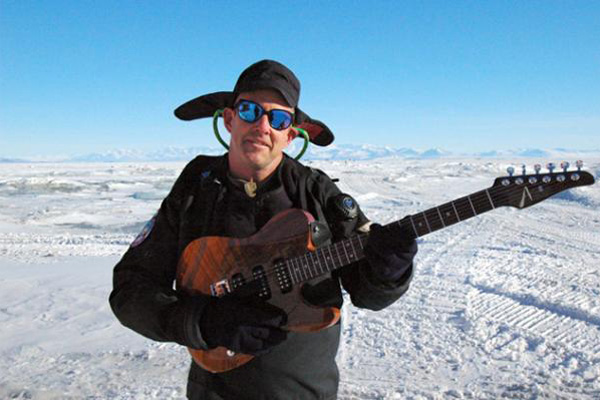
New collaboration with Right Brain Records
Right Brain Records has assembled the second volume of its Guitar Improv Summit series. This compilation album is a celebration of spontaneity featuring some of the finest improvisers in the world, taking advantage of a global pandemic's pent-up creative energy. The Summit’s common threads are the contributors’ spirit of invention and their tool of choice.
Vol. 2 is a virtual festival of players with a five-decade age range from across the U.S., England, France, Finland and India. It includes 14 guitarists: long-established performers, rising stars and guitar improv pioneers. From these far-flung sources comes a sonic collage that explores the full range of the guitar, from experimental to traditional, ethereal to noisy, tonal to dissonant, and acoustic to electronic.
Guitar Moderne Top 10 Records
Please go to the Michael Ross website Guitar Moderne.
Many of this year’s picks were recorded before 2020, for obvious reasons. Works by veterans (Sharp, Alcorn, Björkenheim) joined some newer voices (Naylor, Yalvaç, Gargaud) in offering us quality distractions from a nightmarish year. If you hear anything you like, please purchase something from the artist. With touring off the table, times are tougher than usual for experimental artists. "Michael Ross"
"Strange Memories" New album
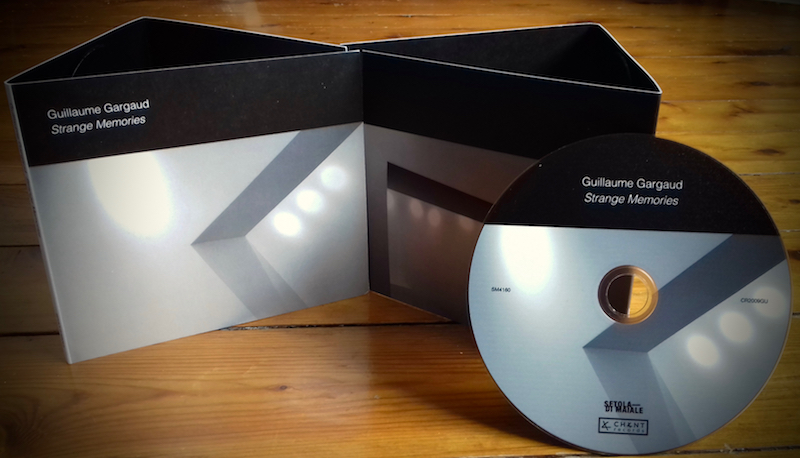
Recorded at his home studio in Le Havre, France, “Strange Memories” is Gargaud’s eighth solo album. It features the guitarist in a beautifully intimate acoustic guitar setting, playing a collection of completely improvised pieces.
New collaboration with Chant Record (New York) and Setola Di Maiale (Italy)
You can buy the CD on SQUIDCO or Setola Di Maiale
Review of Georges Tonla Briquet For Jazz'Halo
(this is google translation)
French guitarist Guillaume Gargaud regularly makes music in company, but this is now his eighth solo album. “This remains the most optimal and personal way for me to develop my ideas. Improvising with others is fascinating, but it is immediately a different field of action ”.
Strange Memories is an introspective style exercise on a steel-string OM model, presented in nine chapters. Pedantic and “art for art’s sake” or the soundtrack to flick through a coffee table book on a Sunday afternoon? Gargaud manages to avoid all these pitfalls. Okay, those who are not familiar with the idiom of guitar improvisations will have to empathize for a while, but once that step is over, you can enjoy a string playing full of surprising moments for almost 45 minutes.
No fingerpicking or rudimentary blues chords, but mainly cautious shuffling over the guitars, alternated with feverish plucking. The barbs are indeed everywhere and a few times the intimate atmosphere is even played to pieces. It is also very strong how he almost instantly switches from a mild setting to a harder and more frontal approach.
Pure pyrotechnic feats that would lead to a “huis clos”, he firmly suppressed. In contrast, he excels at creating crystal brittleness ("Stay Away"!). Gargaud is more concerned with revealing than shattering and prefers to immerse the listener in worlds where landmarks regularly emerge. The sense of craft takes precedence over reckless excesses. He omitted electronic aids. Only in a single song does he use an E-Bow.
"Strange Memories" is the summary of two days of probing and improvising in his home studio. “The first day I was looking for the specific sound I was aiming for for this CD, as I played this guitar for the first time. Then came the assignment to place the microphones in the correct setup to record that intended sound in the correct way. It wasn't until the second day that I actually started playing. The sequence on the CD is that of the studio. I started from the point of view that it was a concert and kept the same structure. After two weeks I listened to everything again and did the final mix. ”
To describe Gargaud as some sort of “incredible one man string band” is no exaggeration. Albeit that he ignores explicit references to well-defined styles and any narcissistic riff. In short, a "guitar pendulum" in the best improvisation tradition. Especially for fans of Dirk Serries.
Review of Ettore Garzia For Percorsi Musicali
(this is google translation)
For Guillame Gargaud's Strange Memories, considerations are made on the role of the acoustic guitarist dedicated to improvisation. It is only one album, of course, and it is not even the first: in 2008 Gargaud recorded Le Lieu, an excellent work played with the prepared guitar, controlled with a personal computer, an excavation that was almost in tune with the trends of Loscil and post-rock musicians; Gargaud was subsequently repeated with Here, with She and with Lost chords, all CDs where the function of the guitarist was not seen as that of a virtuoso, but rather as that of a chiseller of sounds, a filler of spaces. The free improvisation for Gargaud came after 2013 with a couple of albums at the court of Ernesto Rodrigues, with two songs collected in Solo and a Miniatures album with a reflective and relaxed character; for Strange Memories we can certainly speak of the work of maturity (if we remain attached to free improvisation) since the intuitions of Solo and Miniatures are developed here in all their strength. Thus, we discover a guitarist who plays the acoustics wonderfully, working on a condensation of moods that is a consequence of the techniques used: atonality, complex melodic lines and in the tradition of a contemporary guitarist, profuse accelerations on blocked strings, search for counterpoints, glissando places such as plot, search for sounds on the deck, etc. Strange Memories is part of that category of works that marvelously exploit the technical and emotional characteristics of the instrument, what can be perceived in the vibrations of the strings and in the subtle alterity of the phrasing; then, as for Gargaud, I think it is absolutely time to give him more consideration (here you can find his bandcamp page with the solo works that are absolutely worth listening to).
Reviews by Daniel Barbiero for Avant Music News
(...) Guillaume frequently plays electric guitar enhanced by pedals and computer sound modification, but on Strange Memories, his new solo release, he limits himself to acoustic guitar. Gargaud's fluency on acoustic guitar is well-documented; for example, just a year ago he played that instrument on Magic Intensity, a fine duet recording with pianist Burton Greene, who is himself a veteran of the avant-garde jazz world of the 1960s. The improvisations on Magic Intensity are free-floating but cohesive, a pattern that Gargaud continues to follow on Strange Memories. On this new recording Gargaud's improvisations follow a free-associative logic that takes them through harmonic and melodic developments constrained only by the chromatic imagination. The music is by turns abstract and melodic; Gargaud's playing is sharply-etched with the occasional garnish of some extended technique and scordatura and, on one track apparently, some hardly-there electronics.
Reviews by Dionys for Inactuelles Musiques Singulières
(...) Dès "Mystery travel", c'est l'impression que l'improvisation cherche avec obstination, qu'elle n'a rien de gratuit ou de futile, et surtout rien de démonstratif, ce qui m'agace toujours particulièrement chez nombre de musiciens de jazz. Oui, c'est bien un mystérieux voyage, avec ses haltes, sa frénésie passagère, ses hésitations, son recueillement devant la beauté soudain débusquée au coin du feu. La guitare chante, tranquille. "Free spirit" développe un climat d'intimité contemplative : la guitare se fait coquillage à spirale, repliée sur ses cordes qu'elle pince avec une tendre ferveur, hoquetante de bonheur, et l'on entend le guitariste fondre dans un murmure d'acquiescement, à l'écoute de l'éblouissement qui vient illuminer la fin. Comme une plainte pudique, "Stay away" ondule au seuil de l'indicible, notes prolongées, infimes grincements. Le morceau se creuse dans les graves, un rien solennel et très énigmatique, prélude idéal au titre éponyme, "Strange memories", perdu dans des souvenirs enfouis que la guitare va débusquer, délicate. Entre rêverie et jaillissements brefs, un flux finit par se faire jour, une source vive qui se joue tout en courbures, en joie colorée de minuscules gouttelettes harmoniques. Frottements, doux pincements, énergiques poussées rythmiques, "Glissando" se laisse aller à ses vertiges, se ferait presque jazzy par sa mélodie assez attendue, mais se reprend, se tient, le morceau a un côté gitan trépidant, incantatoire, avec une belle coda à l'étouffée ! (...)
Review by Joao Morado for Beats for Peeps .
Recording with Burton Greene in Netherlands
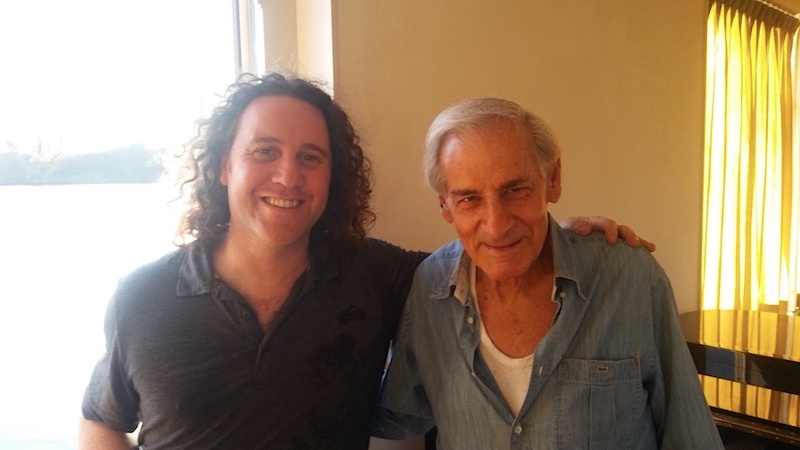
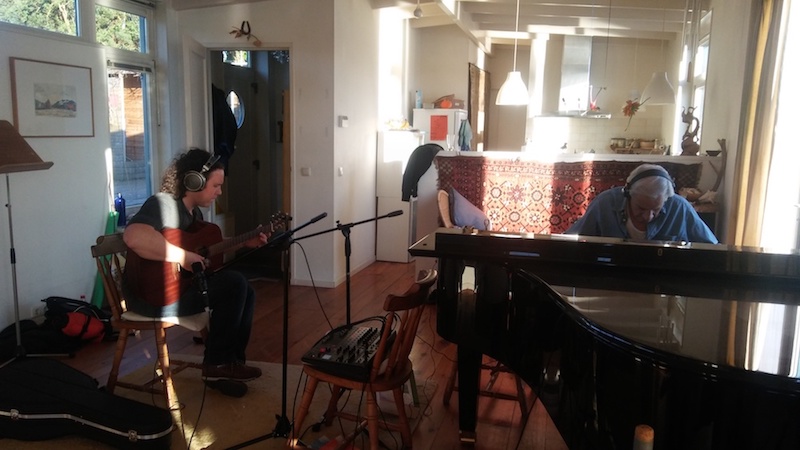
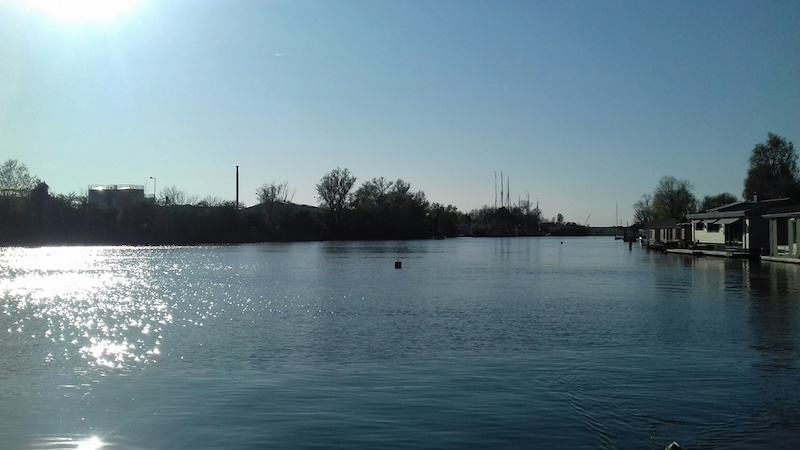
New Album
Magic Intensity with Burton Greene & Tilo Baumheier distribution by Chant Record (NY)
Buy CDs SquidCo
Renowned pianist and composer Burton Greene has been playing professionally since starting out in his hometown of Chicago in 1962. He was one of the first artists to record for ESP, the first record label devoted to avant garde jazz. With Alan Silva he formed the Free Form Improvisation Ensemble in 1963. He joined Bill Dixon's and Cecil Taylor's Jazz Composers Guild in 1964, and has played with a number of other artists including Rashied Ali, Albert Ayler, Gato Barbieri, Byard Lancaster, Sam Rivers, Patty Waters, Mark Dresser and Roy Campbell. Guillaume Gargaud is a French composer and guitarist who specializes in improvised music. He has appeared on 25 albums and composes music for contemporary dance and film. The duo is joined by flutist Tilo Baumheier on three tracks.
Burton Greene: Grand Piano
Guillaume Gargaud: Acoustic Guitar
Tilo Baumheier: Flute (tracks 5-7)
Recorded by Tilo Baumheier on Tilo’s Ark, Weesp Holland, April 19 2019
Edited by Tilo Baumheier and Guillaume Gargaud
Cover Art by Lali
Chant Records Soundcloud Apple Music Spotify Google Play Amazon iTunes
Black Hole Universe with Marc Edwards distribution by Atypeek Music (FR)
Buy CDs SquidCo
Spotify Deezer Itunes Qobuz Amazon Youtube
Marc Edwards - Drums & Percussion
Guillaume Gargaud - Electric Guitar
Recorded at Menegroth: The Thousand Caves Recording Studio, Queens, NY on November 2, 2017
Engineer: Colin Marston
Mixed and Mastered by Colin Marston
Rewiew for All About Jazz by Don Phipps.
In his essays, the "radical for his day" composer Charles Ives asked: "Whence cometh the wonder of the moment? From sources we know not. But we do know that from obscurity and from this higher Orpheus comes measures of sphere melodies, flowing in wild, native tones, ravaging the souls of men, flowing now with thousand-fold accompaniments and rich symphonies through all our hearts, modulating and divinely leading them."
Perhaps Edwards and Gargaud are expressing Ive's "wonder of the moment." But if this is so, then it is a moment in which no quarter will be given. Like being trapped in a falling elevator with no escape, this music induces sheer terrifying exhilaration. Demonic roller coaster? Coiled rattlesnake? Charging rhino? Or simply sonic experiments in space-time jazz?
Like the protagonist in Aronofsky's movie Pi, the listener is confronted with a musical enigma pointing to a future that is both alienating and terrifying. To some, this music might appear deceptively simple —musicians making noise. But given the technical virtuosity of the duo, nothing could be further from the truth. One can hear a mix of Jimi Hendrix meets Robert Fripp in Gargaud's efforts while Edwards sounds like Edwards—a drummer who exhibits a knack for musical nuance while employing preposterously powerful attacks.
For an introduction to the world created by the duo, one might start with "Electrical Acoustic Synapses." The piece begins with an Edwards hot all over drum solo, which flows out of him so naturally, it's as if body convulsions had turned into drum technique. Gargaud enters with long abstract chords and howling rips, supported by Edwards' powerful strokes. At a certain point, Edwards adopts a bumpy rhythm that hops and lands like some chasing space monster while Gargaud's frenzied playing makes the chase seem all too real. Eventually Gargaud's notes turns into one long extended howl—uniquely expressive—while Edwards rampages like a charging stampede of water buffalo. The piece ends on an extended guitar note.
On "Volcanic Eruptions On Lo," there's an engaging rawness between guitar and drums, even at such a high level of technical brilliance. Edwards' cymbal splashes and all over drumming provide a perfect foundation for the guitarist's blinding runs. The music suggests an angry ocean, with waves that dash and fall apart against rocks that tower to the sky. Towards the end, Gargaud produces an almost-violin sound with his guitar.
The relentless intensity continues on the title cut, "Black Hole Universe." Gargaud races like an extended sprint over a marathon's worth of music. The notes turn into a raging river—bucking across Class V rapids at accelerated speeds. Edwards drumming is always supportive of these efforts and occasionally rises to lead the charge. Only on "Supernova Aftermath" is there a break from the action. Yet this piece features subtle eerie echoes, like a surface devoid of life. Edwards uses bells for effect and Gargaud adopts an acoustic tone. The chords are dark and mysterious. There's a gentle feeling— Edwards tapping lightly on the drums with brushes while Gargaud explores growls and bristles at times and then suddenly leaps out. The piece dies off with a soft roar.
Mind bending, mind warping and mind altering, the music of Black Hole Universe has a cyberpunk jazz vibe—like basement music where beings collide like atoms in massive mosh pits. It may be best to approach this music with blinders on, a horse traversing a busy intersection. Else panic might ensue.
Track Listing: Volcanic Eruptions On Lo; Black Hole Universe; Gravitational Waves; Supernova Aftermath; Electrical Acoustic Synapses.
Rewiew by Grego Applegate Edwards for Gapplegate guitar
Words are not entirely sufficient to describe the intensity of this session. Both Marc and Guillaume make full use of their seemingly near limitless troves of rapid-fire expressions to create some remarkable sounds. Guillaume has a highly electric Speed Metal exhaustiveness to his performances, especially the opening 20-minute salvo. Marc counters with the sort of superdynamic all-over busy free bombardment that rivals and even at times surpasses the recorded dynamos of relentless high-intensity flights with his eloquent Slipstream Time Travel outfit. This is edge-cutting sharp!
The music is best described as Free Avant Metal I suppose you could say. It is some of the best such I have ever heard and as a duet does not let up at any point, though each segment concentrates on a particular spectrum of feels without loss of built-in high kinetic density. Edwards and Gargaud hit record heights and we can only hang on as we hear it!
If you wonder where Free Jazz and Psychedelic Metal might join, here's an excellent example. Kudos! Devastatingly heavy.
Review Music and More by Tim
(...) The music comes out white hot, beginning with "Volcanic Eruptions on Io" as the duo creates an exciting amalgam of free jazz and progressive rock that is played at a very fast tempo and demands great stamina and technical expertise from the performers. Both musicians are more than up to the task and engage with each other completely, exploring the available territory as Gargaud extends the playing field with guitar effects and rapid fingering and Edwards uses a wide range of percussion instruments in addition to a traditional drum kit to vary the texture and granularity of his sound. The title track "Black Hole Universe" takes us even further out moving from modern psychedelia to the spiritual jazz realms and resolving to a pummeling duet performance that doesn't let up. Eventually, the sound opens up and they played music using softer dynamics, on the track "Supernova Aftermath" which allows more space into the music and gives the musicians a chance to take their improvisation in a different direction, one that involves gradation of sound rather than full out squalls of noise. This works well as a change of pace, allowing this section to be characterized by constant change and progress, allowing them to set up for the final push to the finish line. "Electrical Acoustic Synapses" ends the album in excellent fashion, with increasingly developing music that is complex and intricate, inhabiting outer and inner space, gradually unfolding like a time lapse flower, with pulsating rhythms around the guitar and drums that evoke a sudden storm. The duo plays with frenetic abandon, in a wildly excited and enthusiastic whirling dervish like maelstrom of sound, creating magic seemingly out of thin air. This album worked very well, and it's hard to believe that the musicians had only played together once before heading into the studio to record this album. Things went so smoothly that their spontaneous performances from the recorded session are presented here in their entirety, without any editing. Fans of avant garde jazz or experimental rock music should definitely make time to check this album out, the music is fresh, the performers are deeply engaged and the results are very impressive.
New Reviews
Ken Waxman from Toronto wrote a great review for JazzWord.com
about "Magic Intensity" Burton Greene, Tilo Baumheier ChantRecord.com
(...) With the exposition pulled tighter and tighter on “Space Rhythms”, the guitarist slides up his strings to meet the pianist’s percussive strutting, gamely picks up the musical quote and further strengthens it, until in a further detour, Greene slows down the narrative to a dirge, with the finale divided between twangs and frails from Gargaud and hard keyboard smashes. Although “Apart Together” is more percussive and is created with darker construction, by the end it also features an about face into duple higher pitches. Meantime two-handed stings and jumps allow Greene to sneak around the keyboard during “Climb Up and Float” as Gargaud’s slurred fingering evolve to confirm the tautness of his strings as until the narrative is calmed with lyrical pops and squirms. (...)
Review HERE JazzWord.com
(...) For his part, Gargaud seems to have inherited some of Derek Bailey’s fear of crisp sustain and Eugene Chadbourne’s percussive fidgetiness. Except for isolated moments, Greene, the elder statesman of improvisation, assumes the role of the melodic and rhythmic driving force of this effort. Gargaud’s contributions often weave in and out of Greene’s more determined directionality, sudden fishtails, swerves, and stops included. Bauheier, meanwhile, adds solemnity and pacifies some of the schizophrenics into an uncharacteristically soft (though still jagged) piece in the closing “Capricious Voyage to Serenity.” A fitting end to an album that modernizes the old, roots the new, and shows that free jazz, in the classic sense, is still alive, vibrant, and even fresh.
Review HERE Free Jazz Blog
Guy Sitruk from Paris wrote for CitizenJazz "Black Hole Universe" with Marc Edwards .
Distribution Atypeek Music & Bandcamp of Marc Edwards.
(...) Dès le début, Guillaume Gargaud dégaine son canon de particules à hautes énergies dans une orgie sonore augmentée des roulements superlatifs de Marc Edwards. Il ne s’agit plus là de scansion mais de martèlement visant l’asphyxie alentour. Dans cette pièce et dans presque toutes celles qui suivent, on succombe à cette ferveur primale en vue d’une forme de purification, celle de l’acceptation de sons autres, de l’inouï.
« Black Hole Universe », en effet, démarre sur une convergence entre claques sur les cymbales et cordes fouettées. Un discours halluciné se déploie sur la guitare, privant les peaux de tout espace d’expression. Il faut l’insistance énergique de Marc Edwards et le secours de ses cymbales pour tenter de surnager dans ce tsunami, dans ces mitrailles de notes. Progressivement ces dernières se font averses, le fer se fait eau. Nous glissons de la Noise à l’électroacoustique. (...)
Review HERE
Guy Sitruk from Paris wrote for CitizenJazz "Magic Intensity" with Burton Greene & Tilo Baumheier .
Label Chant Record
(...) Certaines phrases commencent sur un instrument et se poursuivent sur l’autre. Un jeu permanent entre mimétisme et anticipation-continuation des discours. Cela saute aux oreilles dès la première pièce, « Space Dialogue », que l’initiative vienne de l’un ou de l’autre. Un bout de comptine à la guitare donne lieu à des développements dans d’autres registres esthétiques au piano. Des quasi-percussions sur les notes aiguës du clavier trouvent leur écho sur les cordes pincées.
Cet entrelacs très dense concerne aussi les matières sonores, les couleurs, les rythmes comme sur le bien nommé « Space Rhythms ». L’incroyable inventivité de Burton Greene trouve le répondant idéal auprès de son jeune compagnon. D’une certaine manière, le pianiste semble se libérer de toute contrainte, avec la certitude que Guillaume Gargaud saura trouver la réponse, voire le nouveau jeu, ce qui ne manque pas de se produire. Car manifestement, ils s’amusent beaucoup. Un semblant de « A Love Supreme » ou de « Take Five » au piano (oui, Burton Greene se permet ce qu’il veut) est transfiguré sur les cordes. Une mécanique insistante de l’un ouvre des espaces vertigineux chez l’autre, sans élève ni maître. Parfois, la guitare devient résonance et prolongement de la main droite du piano. Si ce dernier développe des percussions éparses, suraiguës ou graves, la guitare en épouse la scansion pour aller visiter d’autres rivages. (...)
Review HERE
Revue & Corrigée n°125 by Joël Pagier
Guillaume Gargaud est un guitariste résidant au Havre qui vient de publier successivement deux albums en duo avec deux figures historiques du free jazz américain, le pianiste Burton Greene et le batteur Marc Edwards. Sans dissimuler pour autant le moindre coup médiatique, cette double parution nous permet néanmoins d'apprécier toute l'étendue de son talent puisque les deux enregistrements explorent chacun un univers sonore bien précis. En effet, dans le "Magic intensity" gravé avec Burton Greene, le guitariste s'exprime exclusivement en acoustique, un choix dont la pertinence apparaît dès la première écoute, lorsqu'on découvre le phrasé des deux musiciens et la clarté de leur timbre, mais qui prend tout son sens quand on le met en perspective avec le "Black hole universe" improvisé avec Marc Edwards dans un véritable déluge d'électricité.
Guillaume Gargaud & Burton Greene
"MAGIC INTENSITY" CHANT RECORDS, CR1909BU - 2020
Très actif à Chicago dès le début des années soixante, Burton Greene a traversé l'histoire du free, d'Alan Silva à Marion Brown, Sam Rivers ou Patty Waters puis, une fois en Europe, des trublions de l'ICP aux rockers du Gong, avant de s'immerger dans la culture klezmer et de s'intéresser de très près aux modes orientaux et aux rythmes africains. Mais c'est bien l'improvisateur qui met ici son feeling et son doigté au service d'une esthétique jazz mêlée d'influences diverses, dont les B.O. de polar et de cartoon, prodigues en breaks soudains et bruitages pataphysiques, ne sont certainement pas les dernières.
La liberté de ton adoptée par le duo se vérifie d'ailleurs dès les premières mesures où l'acier des cordes frappées ou pincées obéit aux exigences immédiates d'une conversation volubile et passionnée, ponctuée d'arguments définitifs, d'engouements respectifs et de fameux coups de gueule ! S'ensuit une série d'invectives annoncée par quelques frappes sur la table d'harmonie, puis un échange d'affirmations péremptoires ou l'énergie virtuose l'emporte parfois sur le discours, jusqu'à ce que s'instaure un jeu de questions/réponses dont la subite précision nous laisse pantois. Les termes de ligne, d'accord ou de structure deviennent obsolètes pour décrire ce free dont le jazz s'est enfui, mais où l'écoute prime dans la fulgurance de l'instant. Les cordes claquent quand les doigts talonnent le clavier, tolérant parfois l'ombre d'une accalmie, avant que la fougue contenue à grand-peine ne s'échappe dans le puissant vibrato d'une note solitaire arrachée au métal. Et l'album poursuit son chemin torturé, alternant l'embrasement d'architectures vertigineuses et la douceur éphémère de paysages horizontaux dont la limite pressentie ne tarde jamais à paraître.
Sur les trois dernières plages de ce flux torrentueux qui en comporte sept, la flûte de Lilo Baumheier perce l'épaisseur de la matière façonnée par les duettistes et s'insinue dans l'entrelacs de leur pistes convergentes. La joute, désormais, sera triple, accentuant la complexité des échanges dont l'humour transparaît au-delà des luttes perpétuelles et soumettant à un nouvel éclairage la brutalité lyrique de leurs empoignades sans lesquelles ce "capricieux voyage" n'aurait sans doute jamais pu atteindre la "sérénité" contenue dans son ultime titre.
Et pourtant, si cette intensité magique ne trouve un semblant de paix que dans l'éventuelle résolution de ses tensions, elle n'est qu'un avatar minimaliste en comparaison du "Black hole universe" enregistré avec le batteur Marc Edwards et dont l'urgence chronique touche à l'abstraction.
Guillaume Gargaud & Marc Edwards
"BLACK HOLE UNIVERSE" ATYPEEK MUSIC, B07VVD2Y8S - 2020
Vers la fin des années 70, après avoir côtoyé des clients du calibre de Cecil Taylor, Charles Gayle ou David S. Ware, Marc Edwards disparaît des radars pour revenir, en 1990, avec un trio complété par Sabir Mateen et Hilliard Greene. Dix ans plus tard, il forme le Slipstream Time Travel, un quartet à la croisée du jazz, du rock et de la noise, prémisse à ses ultimes amours qui le mènent Downtown, au cœur du maelström new-yorkais orchestré par Weasel Walter et son Cellular Chaos. C'est donc un batteur extrême et branché sur le secteur que rencontre notre ami Guillaume chez qui l'on a déjà pu déceler une relative appétence pour les formes explosives et l'exubérance discursive.
Les deux hommes ne vont pas y aller par quatre chemins, mais par un seul : la ligne droite, verticale et soumise à la pesanteur. Dressés au bord du vide qui les contemple, ils plongent jusqu'au bout du vertige, dans une avalanche de riffs électriques et de rythmes inflammables, aspirés par la noirceur de ce précipice qu'ils traversent à la vitesse du son. Dès les premières mesures, le titre de l'album s'impose dans toute son outrance : "Black hole universe" ! C'est dans les couloirs obscurs de l'espace, là où les portes de l'imaginaire s'ouvrent vers des Mondes insoupçonnés, que voyagent les deux musiciens, dans un univers abstrait où les notions de silence et de tumulte s'interpénètrent jusqu'à disparaître. Au tout début l'on doute, pour ne rien vous cacher. Le son est admirable, des cordes saturées à la souplesse des peaux et à la brillance du cuivre, le guitariste mêle l'incandescence du free, l'urgence du rock et les dérapages contrôlés de la noise quand le batteur lâche la bride au foisonnement de ses frappes ponctuées de gifles assassines sur le métal des cymbales... Mais on peine à distinguer le propos de ces "Eruptions volcaniques" de 18 minutes aussitôt suivies d'un "Black hole universe" dont les 17 minutes 30 embrayent sur un tempo tout aussi infernal. En fait, on en viendrait presque à craindre la vanité d'une technique effroyable au service d'un vide absolu ! Et c'est quand l'inquiétude surgit que l'évidence s'impose. Cette apparente logorrhée brûlant de toute son énergie s'est effectivement mise au service du vide absolu, mais pour en percer le mystère, comme si le duo avait atteint les rivages du néant, dont la masse n'est jamais que le double inversé, pour nous en offrir l'exclusivité. Dès lors, une fois admise cette prise de conscience, le déluge sonore nous emporte peu à peu dans l'impétuosité de son cours et les doutes s'estompent pour laisser place à une sorte de fascination contemplative. On s'enveloppe dans la chaleur de ces coulées de lave dont la magnificence nous semble désormais évidente, au point que les deux plages de calme venant à la fin du second titre et après dix minutes du quatrième véhiculent finalement plus de menace et de drame que toute la fureur déversée par les cordes embrasées et les toms survoltés.
On l'aura vite compris : Guillaume Gargaud n'a pas peur de grand-chose, ni de frapper à la porte de ces artistes qui ont fait l'Histoire, ni de s'embarquer avec eux pour les expéditions les plus dangereuses. Pourtant, en dépit d'une technique infaillible et d'une réelle musicalité, le guitariste joue moins en France qu'à l'étranger, croisant régulièrement entre Naples, Helsinki et Lisbonne où il a d'ailleurs gravé un autre album sur Creative Sources avec Ernesto Rodrigues ainsi que le clarinettiste François Lebègue. Il serait toutefois bien étonnant que l'originalité de ces deux parutions ne vienne pas chatouiller les oreilles de certains programmateurs à la curiosité bien trempée...
Finland Tour 2020
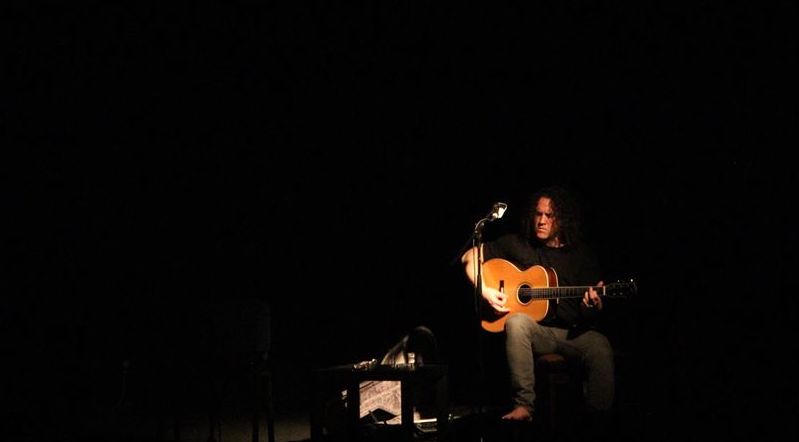
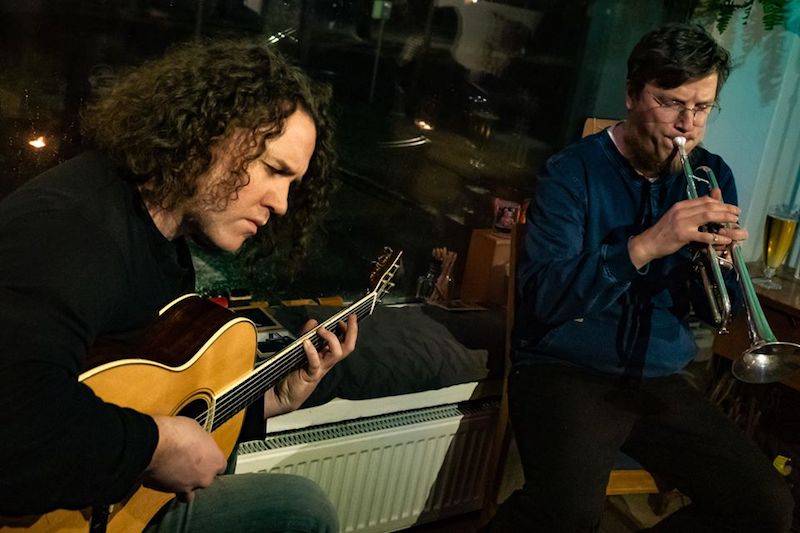
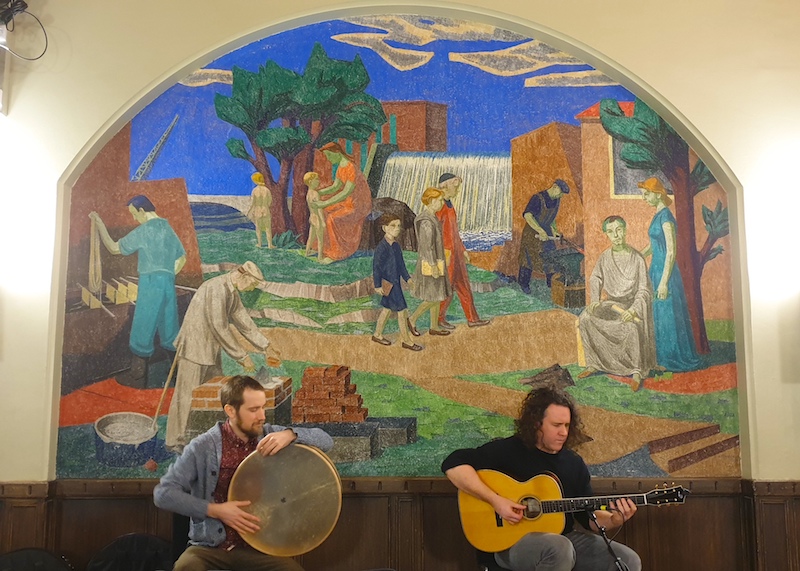
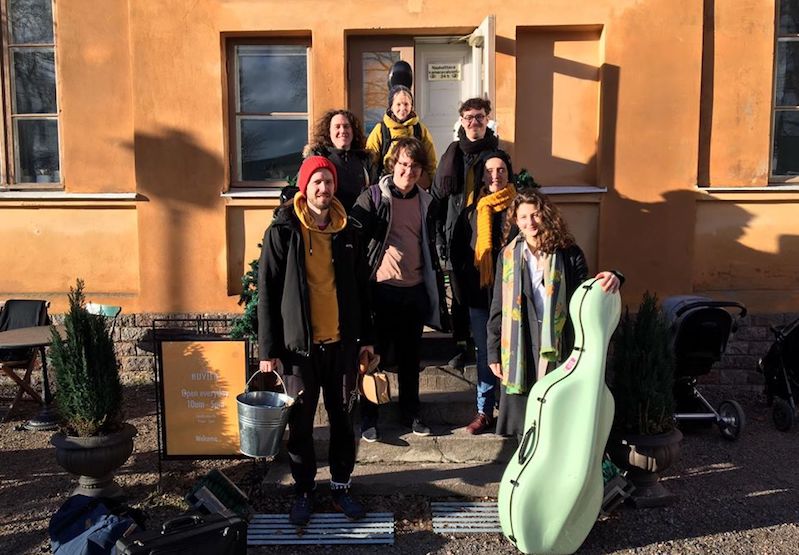
Collaboration with Eero Savela "trumpet" Simo Laihonen"drum" & Korvat Auki Ensemble .
Helsinki new record with Eero Savela
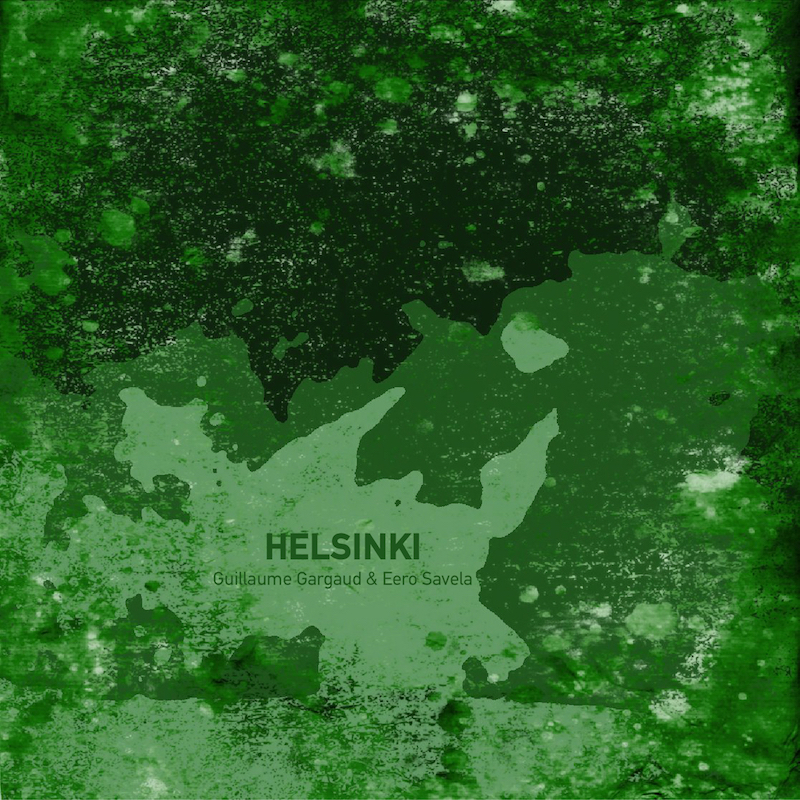
Guillaume Gargaud and Eero Savela met in Helsinki on 21st of February 2020. At that night in the former mental hospital Lapinlahti they did their first improvisation together and here you have it - music as it was from the first note to the last.
This album is a meeting of two new friends. Coming together is always a chance for new directions, a chance to learn from each other and enjoy the free flow of music.
You can buy the CD on SQUIDCO
Recording in Helsinki 21st of February 2020 by Eero Savela
Mastering in Paris by Richard Comte
"The thirty-four-minute-long Helsinki Part 1, recorded in what now seems like the antediluvian pre-covid month of February, 2020, documents the first time guitarist Guillaume Gargaud of Le Havre, France, and Finnish trumpeter Eero Savala played together. That this was their initial meeting isn’t at all apparent in the music, which develops with a smooth, unbroken progression of ideas that are realized with an unhesitating assurance—not only for the entirety of the lengthy first piece but on the shorter follow-up as well. What both improvisations reveal is a strong lyricism carried along on Savela’s warm, mid-range voice, the unhurried phrasing of which contrasts with the bright, staccato tones of Gargaud’s acoustic guitar. Gargaud supports Savela’s melodies with sympathetic chords and countermelodies that evidence a sophisticated harmonic sense working in real time"
miniatures - new compositions 2019
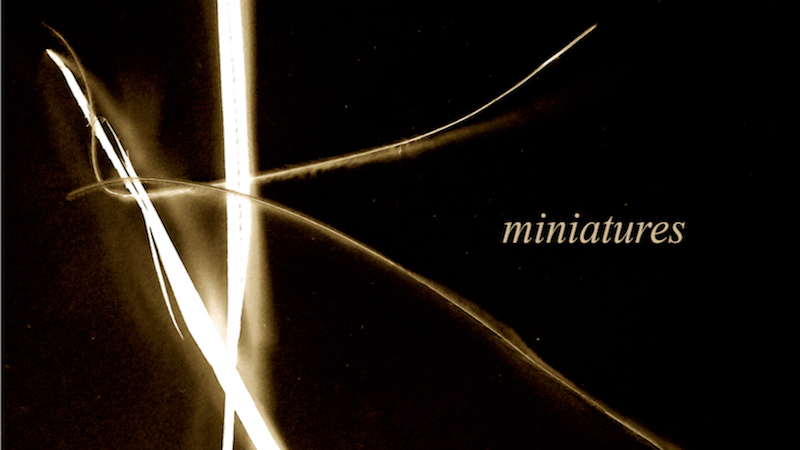
Twenty miniature compositions for acoustic guitar from French composer and improviser Guillaume Gargaud, each under one and a half minutes, the shortest just 53 seconds, each composed in 12 measures creating a lovely reflective and introspective set of abstract melodies, poetic and evocative music from a player dedicated to solo guitar work. SquidCo
Buy CDs SquidCo
Concert with Stephen Grew, Munich Offene Ohren e.V
Some photos of my last concerts
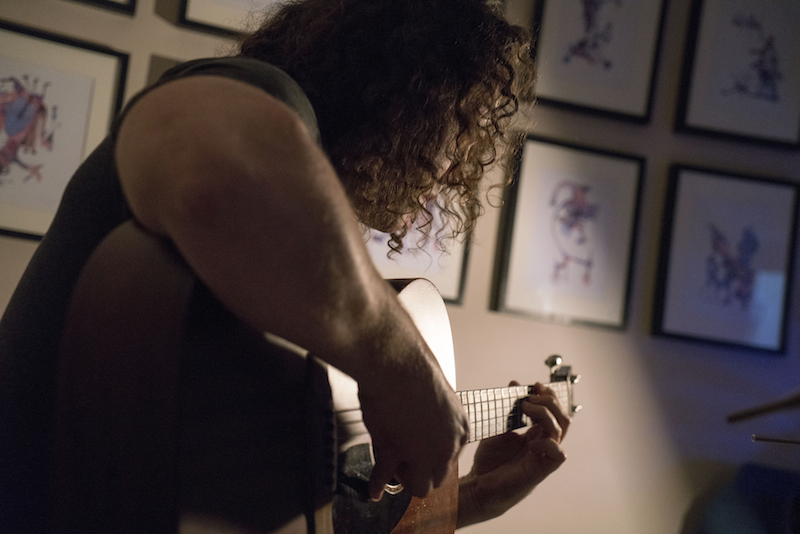
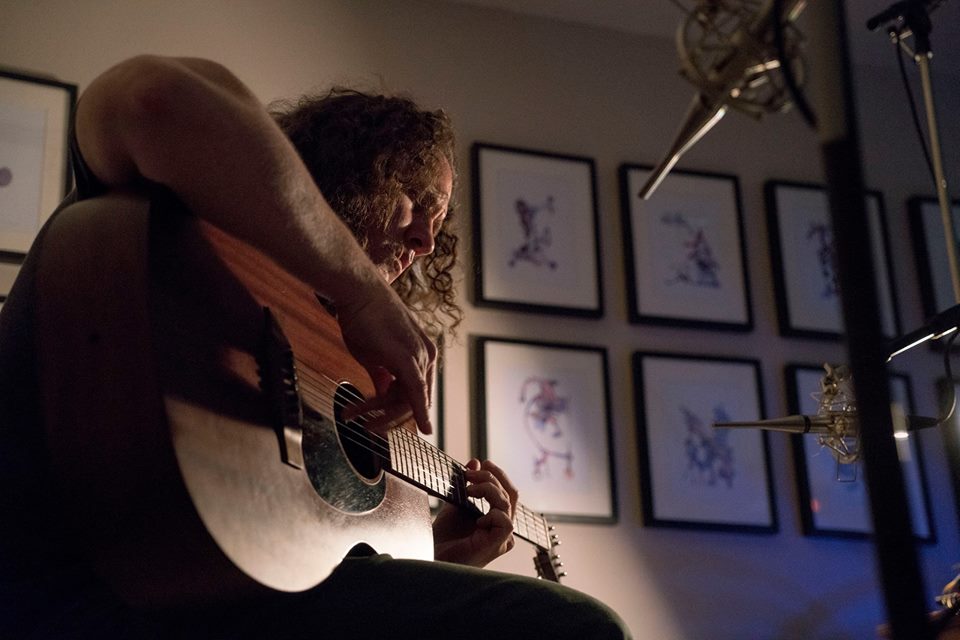 Photos ©Vincent Connétable
Photos ©Vincent Connétable
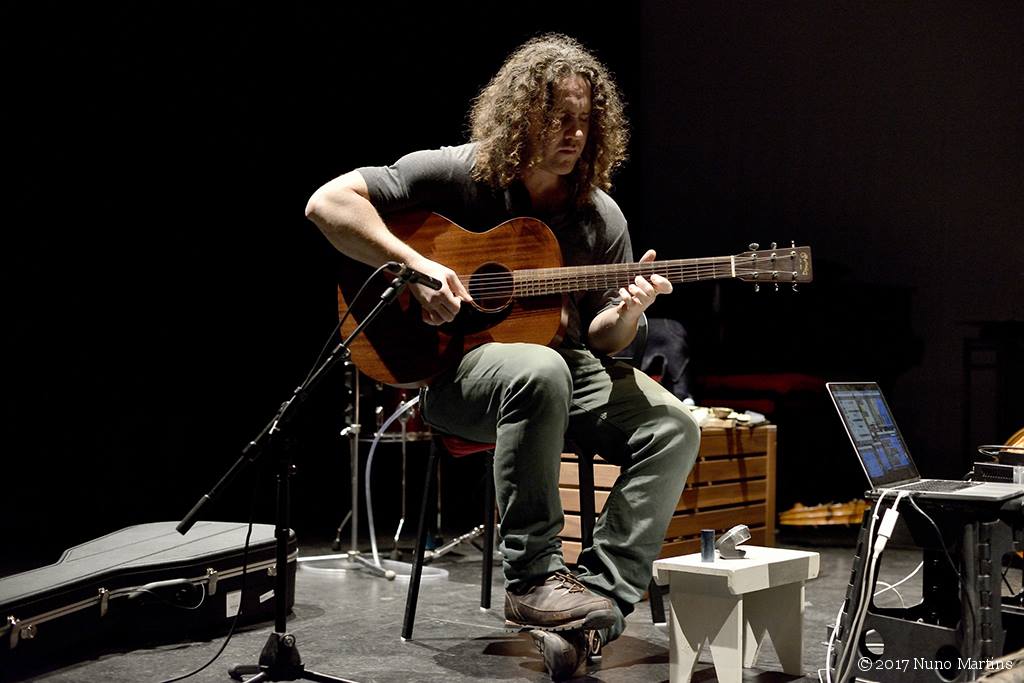
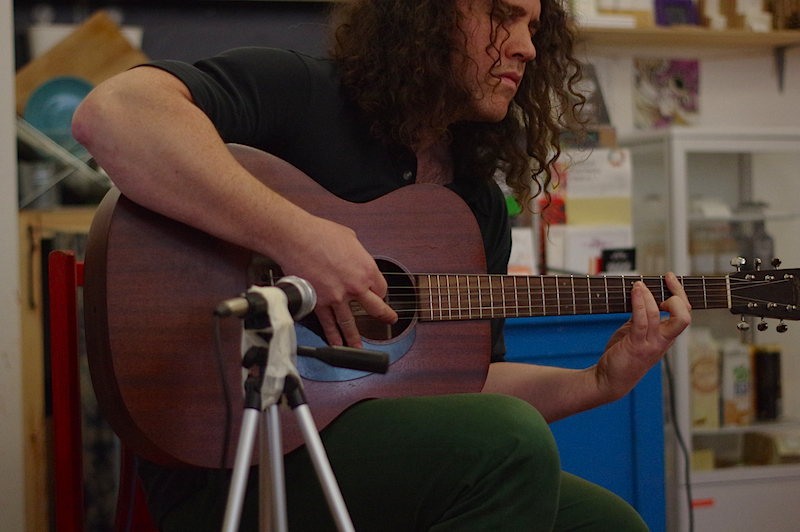
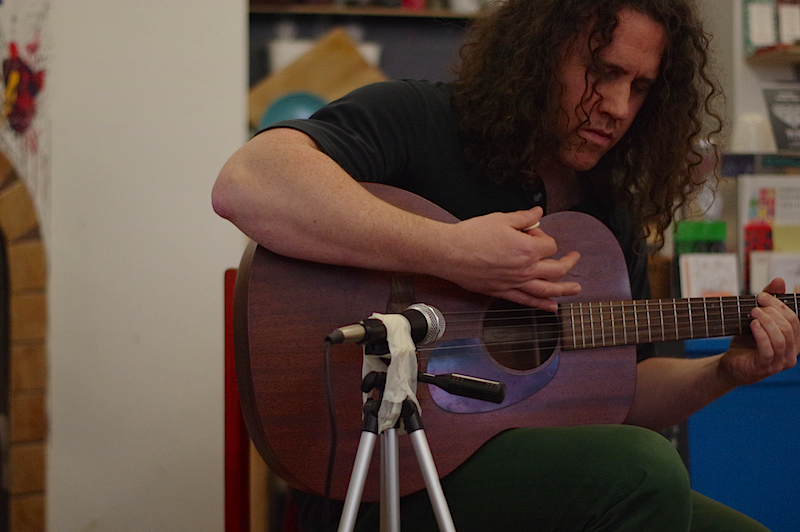 Photo @Resonant Digit
Photo @Resonant Digit
Les mondes clos - creation 2018 by Zwann eï

« Désirer c’est construire un ensemble, désirer c’est construire une - région - ». (Gilles Deleuze, Abécédaire, Lettre D : Désir) .
Des écrivains comme Faulkner, Benet, García Márquez ont créé des mondes totalement clos (comté de Yoknapatawpha, Région, Macondo) pour y développer un agencement de désir destructif. Tels un studiolo, une pièce sans porte ni fenêtre, une monade leibnizienne, ces mondes n’ont pas d’extériorité, pas de rapport référentiel. Faulkner voit ainsi la vie comme un tout fermé et accompli qui n’a aucune autre explication que celle qui émane de son aspect et de son histoire. Ce qui constitue alors une révolution dans le roman est de créer un monde, de l’étaler froidement sur une table devant nos yeux étonnés pour montrer la preuve définitive de la ruine. Le lecteur entre dans un monde parallèle qui est la formulation d’une excroissance de l’éternité, une substance cosmique où évolue la chair morte de la pénombre : « L’homme est l’être pour qui la vie implique le vide en avant et arrière de lui » ( Fréderic Worms, Arnaud François ( dir.), L‘évolution créatrice de Bergson, Vrin). Le huis clos de Carson Mc Cullers ( 1941), Reflections in a golden eye évoque ces êtres à qui il n’arrive presque rien, de petits drames intimes qui, ramassés tout au long d’une vie, finissent par lui donner une dimension tragique : ni libres, ni aliénés, les personnages piétinent dans un univers fermé et entropique. À propos de l’œuvre de Beckett, Alain Badiou écrit qu’elle se situe « aux confins de l’enfoncement ténébreux et corporel des existences abandonnées, des délaissements sans espoir et d’une démonstration absurde sous la forme d’un baroque moderne » (Alain Badiou, Beckett, L’increvable désir, Pluriel, 2011, p. 9).
La performance Les mondes clos construit une région, un agencement désirant où l’homme sans possibles ne peut être appréhendé que selon une fatalité absurde et fermée. Le duo emprunte les éléments d’un discours chorégraphique et théâtrale inspiré d’un quotidien qu’il élève à l’abstraction. Il s’agit d’opérer un tracé selon un modèle orbital qui revient sur soi, se reprend, se répète en un infini ressassement... Dans ce parcours immobile, la musique opère comme une ponctuation cinématographique, à la fois calme, dissonante et saturée ; le trajet vide et compulsif du personnage ne vise pas à l’esthétisme mais à créer une syntaxe de la variation continue, en expérimentant des limites mentales qui concernent aussi la limite des langages et des représentations.
ENDIOSADA New Creation of Zwann eï
Faith «struggles insanely, if you will, for the possibility» as «without possibility it is as though a person cannot draw breath» (Sören Kierkegaard, The Sickness Unto Death) Such is the existential struggle: believing despite inevitable loss and despite the impossibility of any help. Believing is what prevents from perishing. Drawing from the themes of faith and belief, the performance Endiosada (literally entrusted by God ) explores freely the points of contact between life devoted to the permanent quest for help and transcendence.
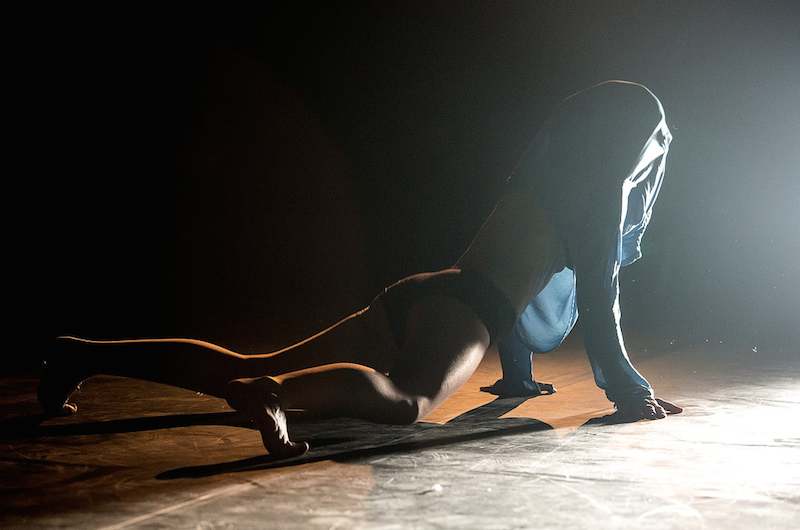

WebSite © Jean-Luc Nail
New composition- Fendre Les Flots
Film annonce Fendre les Flots from Christophe Guérin on Vimeo.
A 42 days journey aboard a container ship results in a filmic diary in which is written, between the departure and the return to Le Havre, the flow of days. In the continuity of the route, the illimited horizon of the Atlantic ocean, stops in Central America and in major ports of the northern range, commercial operations, life on board ... are visual and sound material of the film which materiality is crossed by the music of Guillaume Gargaud who comes as moments of retirement.
Christophe Guérin distribution Light Cone from Paris
It's an composition for the movie of Christophe Guérin. I took my electric guitar to make this seven tracks. The movie was screened at Ciné Salé Festival & Les inattendus Festival
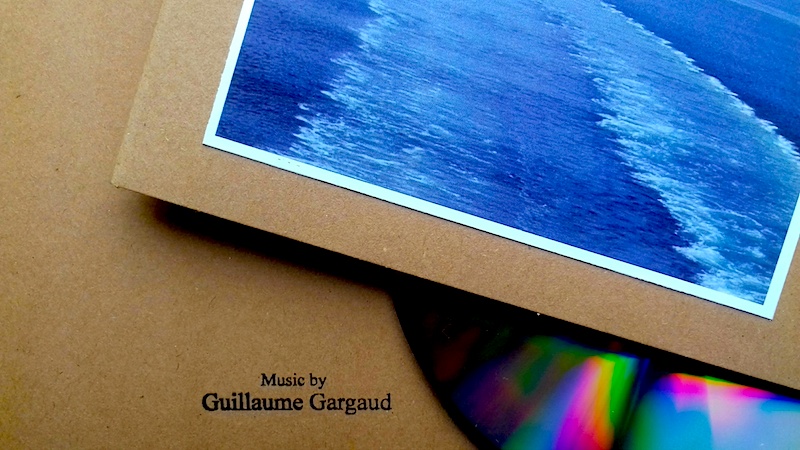
SOLO-New Album
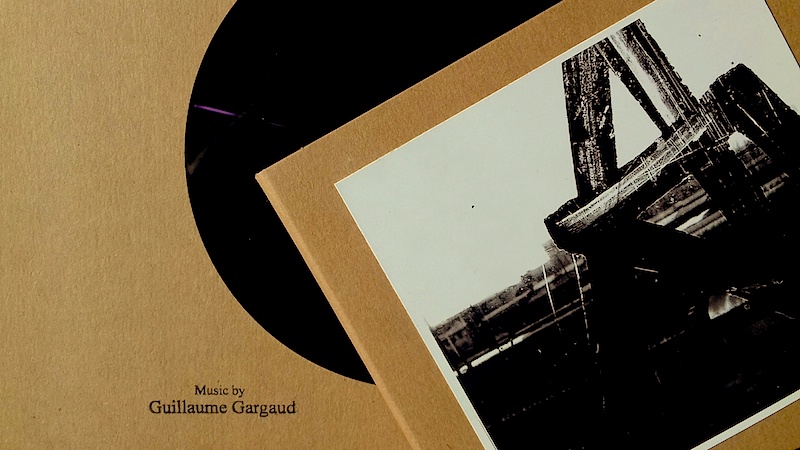
This album has recording with an acoustic guitar "000" It's the result of my last two years of work. It's an improvisation. One shot recording in october 2017 at Le Havre. If you want a CD write me at ggargaud@gmail.com
Collaborations with Speet Silex
ZKRAAP is the latest manifestation of improvisational rock and free jazz drumming. The avant-garde free jazz has a small following, however it has made an impression in the music world. Rock musicians are very knowledgeable about other musical genres. Thurston Moore of Sonic Youth, for example, has worked with several free jazz artists. Electric guitarist, Guillaume Gargaud takes this concept even further via his long melodic excursions, while drummer, Speet Silex, is exploring via free jazz drumming. ZKRAAP is a highly combustible duo that grabs the audience and doesn’t let go. They maintain the high energy free jazz approach at length, gradually, returning to the earth to more familiar surroundings. For those that like adventurous music, look no further than this exciting duo.
Marc Edwards From NY Free Jazz/Noise Rock Drummer
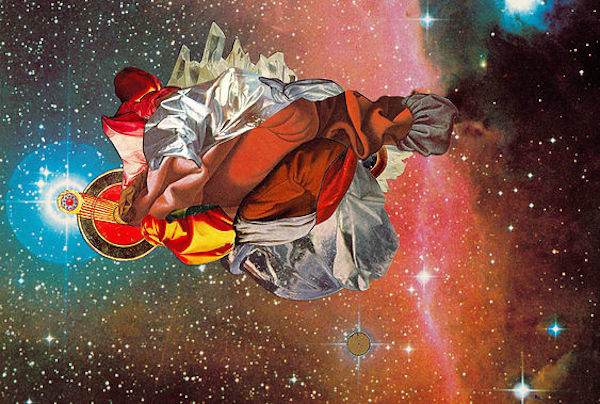
Album cover made by Speet $ilex.
